
Produce for the people Farmers markets no longer are the purview of the a uent shopper. The heirloom tomato is within reach to both the haves and the have-nots.
Page 2


Produce for the people Farmers markets no longer are the purview of the a uent shopper. The heirloom tomato is within reach to both the haves and the have-nots.
Page 2
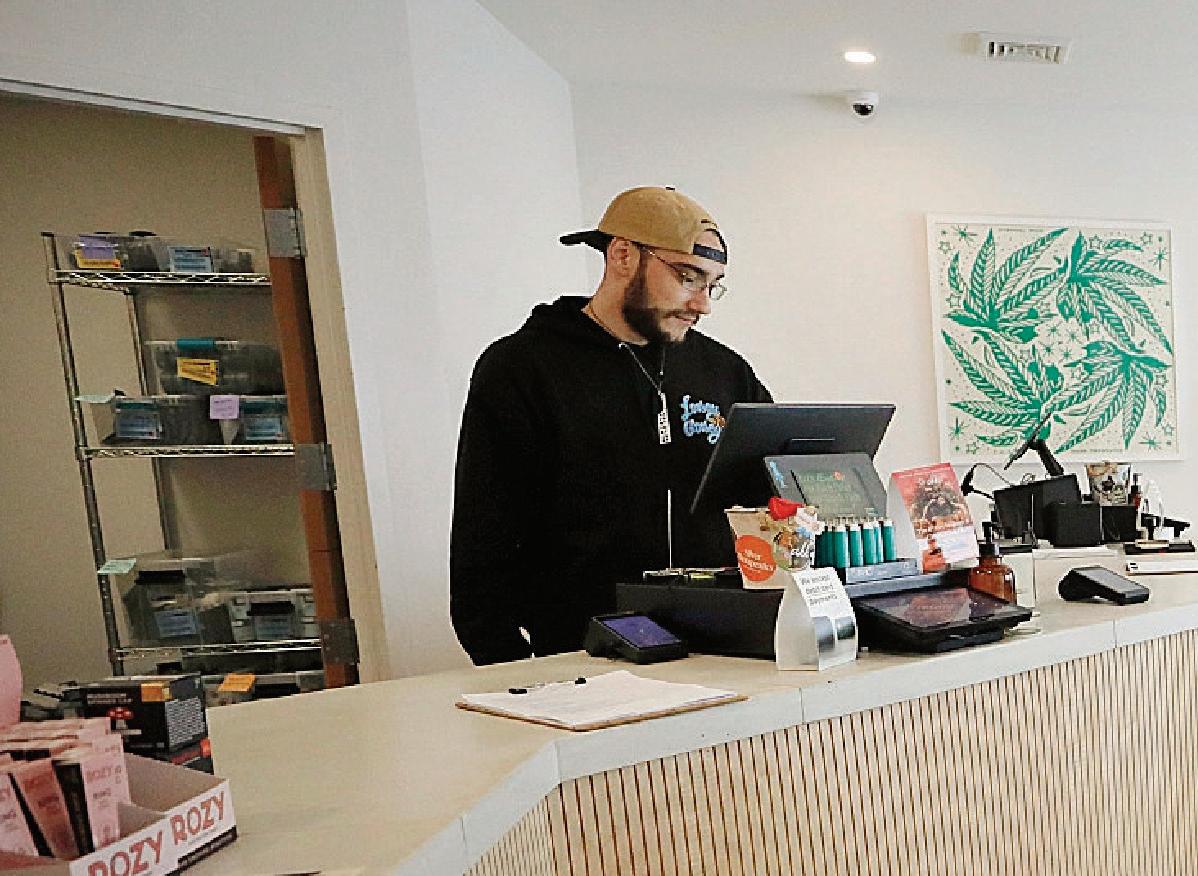




BY ELLIE DAVIS
In 2015, when Brandon Pollock was co-founding his business, Theory Wellness — a multistate cannabis cultivation, manufacturing, and retail company with a location in Great Barrington — he couldn’t get a loan from a bank.
“We were severely limited,” Pollock said.
While it’s legal in Massachusetts, the federal government classifies cannabis as an illegal, controlled substance. That federal regulatory roadblock limited Pollock’s access to banking services, including loans. So, Pollock started his business with small loans from friends and family. Like cannabis retailers elsewhere, Pollock’s business also can’t accept credit cards, declare bankruptcy, trademark its products or write off standard business expenditures as tax deductions.
But soon, his business and other cannabis dispensaries might gain more financial freedom. The federal government is now working to loosen restrictions on cannabis by reclassifying the drug under the Controlled Substances Act (CSA) from Schedule I to Schedule III.
Rescheduling cannabis will give local dispensaries a vital financial boost by eliminating tax burdens and will possibly give cannabis businesses more financial freedom through banking access. But the change will not federally legalize the drug for recreational purposes, and it

Due to banking restrictions, cannabis retailers like Silver Therapeutics in Williamstown cannot take credit cards and can only accept payments in cash or via their cashless ATM withdrawal units.
could add a complicated layer of federal regulation to state policy in Massachusetts that has legalized the licensed recreational sale of cannabis since 2018.
President Joe Biden prompted this change in response to inaction from Congress by requesting a recommendation for the rescheduling of cannabis from the Department of Health and
Human Services in October 2022. The Drug Enforcement Agency (DEA) received this recommendation in August 2023 and is currently accepting public comments on the proposed rule until July 22nd. The DEA will issue the final rule in the coming months.
The DEA defines Schedule I drugs, including heroin and lysergic acid di-
ethylamide (LSD), as those that have no medical use and a high potential for abuse. Under the proposed rule, cannabis would fall into Schedule III, a category of drugs that the DEA considers to have accepted medical uses and a moderate to low potential for abuse, such as ketamine and anabolic steroids.
To understand how this change would impact the cannabis industry in Berkshire county, the Eagle spoke with leaders from three local dispensaries. Most agree that the federal government is taking an important fi rst step in catching up to the reality of normalized recreational cannabis use in many states.
Erik Williams is chief operating officer at Canna Provisions, which has a location in Lee. He pointed out that never before has a federally criminalized drug been legally sold for recreational purposes within states, leaving many questions unanswered.
“There’s an awful lot of horses across this country that have already gotten out of the barn and have been running around for years,” he said. “How is [rescheduling] going to affect the industry? No one is 100 percent sure.”
Classifying cannabis as a Schedule III drug will have the most immediate impact by lifting tax burdens on canna-
markets aren’t just catering to the rich these days

By Jane Kaufman
The Berkshire Eagle
Reach for an heirloom tomato at a farmers market today and you’re as likely to rub elbows with someone who can afford to pay top dollar as you are with someone who can’t.
This hasn’t always been the case. In the 1990s, farmers markets boomed in popularity and produce prices cultivated exclusivity. But market-rate prices didn’t result in sustainable prosperity for farmers. Whole swaths of the community were priced out of farmers markets and their fresh, locally grown fruits and vegetables. Farmers couldn’t afford to produce for any less and still make their livelihoods viable.
Fast forward to today: Farmers markets no longer are the purview of the affluent shopper. The heirloom tomato is within reach to both the haves and the have-nots.
Boosted by federal and state subsidies and the advocates who pushed to make it so, farmers markets foodstuffs are now affordable — and in many cases are half-price or free — to people in need, while still guaranteeing that farmers collect the retail prices they need to keep producing.
MASSACHUSETTS INNOVATION
The federal 2014 Farm Bill gave farmers the ability to sell to consumers through the federal Supplemental Nutritional Assistance Program, commonly
known as SNAP and formerly known as food stamps.
But the game-changer in terms of opening Massachusetts farmers markets to people for whom price is a barrier came in 2017. That’s when Massachusetts launched its Healthy Incentives Program, which puts money back on a person’s EBT card when they use SNAP benefits to buy healthy, local fruits and vegetables directly from farmers.
“It was the first program of its kind in the country,” Ashley E. Randle, commissioner of the Massachusetts Department of Agricultural Resources, told The Eagle. “So it really did set a model for other states.”
WHY FARMERS GO TO MARKET
“The only reasonable way
that farmers of our scale can make a living is by selling direct to customer at retail prices,” said Jim Schultz, who owns Red Shirt Farm in Lanesborough, working a total of 13 acres. “As soon as you start to go wholesale, the margins get even thinner.”
That aligns with the conclusion of a study that the Massachusetts Department of Agricultural Resources made in 1978, at a time when the state had about a dozen farmers markets, including one in North Adams. The study predicted that Massachusetts farmers wouldn’t be able to compete against larger farms.
“In order to ensure that Massachusetts farmers were as viable as possible, and that we
retained as much farmland as possible, direct to consumer was the mechanism that would provide the highest and most efficient return on investment for farmers,” said Edith Murnane, executive director of Mass Farmers Markets, a nonprofit that works to promote healthy lifestyles, community and farming through farmers markets. “So the initial mission, which is really still very central to the work that we do, is to help create and promote and develop vibrant marketplaces for farmers so that they have a really effective way to do direct to consumer sales.”
As of the 2022 Census of Agriculture, Berkshire County had 471 farms encompassing

BECKET
Home watch firm earns accreditation
CRM Home Watch, serving Southern Berkshire and Western Hampden counties, has earned accreditation from the National Home Watch Association. The NHWA was formed in 2009 in order to establish and maintain the highest industry standards for Home Watch and absentee homeowner services throughout the United States and Canada.
Home Watch is a visual inspection of a home or property, looking for obvious issues, which means that it is a service that “keeps an eye on things” at vacation or primary homes while the homeowner is not in residence.
All principals of NHWA accredited member companies are background-checked, insured and bonded.
Driven by his own experiences as a second-home owner in the Berkshires, Chris Maccarini founded CRM Home Watch to address the need for reliable home monitoring services in the area.
As a Project Management Professional with a background in leading information technology projects at institutions like Massachusetts General and Brigham and Women’s Hospital, Maccarini brings a wealth of expertise to CRM Home Watch. He left Steward Health Care in December 2019 as a director in the project management office, overseeing all clinical, operation and financial IT projects at Steward Hospitals across the country.
Before delving into project management, Maccarini honed his skills as an investigator, working with large security companies and Massachusetts-based private investigators.
Maccarini is a graduate of the NHWA’s Home Watch Boot Camp and a certified home watch professional. Information: crmhomewatch.com.
NORTH ADAMS Battle of Bartenders nets $8,500 for BFAIR
Members of the Berkshire Realtors community, along with other industry experts, BFAIR supporters, staff and board members raised more than $8,500 for BFAIR at the recent Battle of the Bartenders-North at 413 Bistro & Tap Room.
Six teams competed every 30 minutes at the three-hour event on May 30, shaking, stirring and pouring to raise $8,524.
The first place team, Boozy Brokers, raised $2,036; Thirst Things Thirst, second place, $1,678; The Cocktail Closers, third place, $1,855; Shakin’ Things Up, fourth place, $1,502; The Fantastic Pour, fifth place, $1,063; and Rum Slingers, sixth place, $389.
BFAIR provides adult family care, residential, employment and day services for adults and children with developmental disabilities, acquired brain injury and autism in Berkshire,
Hampden and Hampshire counties.
PITTSFIELD
Goodwill Industries receives $1,200 grant
Goodwill Industries of the Berkshires and Southern Vermont has received a grant of $1,200 from the Eversource Foundation for its Soar for Success program.
In the last year, Goodwill’s Soar for Success program served 53 individuals with job coaching and other services, and provided 1,168 vouchers for clothing and household items to individuals in need.
Goodwill’s Soar for Success job training program focuses on teaching essential employment skills, provides interview and work-appropriate clothing, and helps community members secure meaningful work. The program is offered free of charge to all Berkshire County residents.
Services are provided at Goodwill’s Career Centers in Pittsfield and North Adams and online. Goodwill sells donated clothes and household items at a discounted price to aid in funding training and educational programs for individuals seeking employment.
NORTH ADAMS
BFAIR presents awards at May annual meeting
Over 175 staff, community partners and supporters gathered last month for the annual BFAIR annual meeting at the Berkshire Hills Country Club in Pittsfield.
The meeting included recognition of employees with five or more years of service, Keystone Awards, and an inaugural presentation by Sally Petersen of the Hart Family Fund Award.
Guest speaker Peter Johnson, representing the Massachusetts Developmental Disabilities Advisory Council, recounted his positive life experiences as well as his advocacy work on behalf of people with Down Syndrome and developmental disabilities.
Keystone Award recipients include the following:
• Casandra Magner, ABI residential house manager, received the Crosby/ Quintal Memorial Award named in remembrance of two former employees for their commitment to equality, advocacy and human rights.
• Kaytlyn Stringer, a BFAIR-supported individual, received the Edward Frampton Self-Determination Award, presented to a person served by BFAIR who achieved a personal goal.
• Kris Neep, director of community-based day services, received the Leadership Award given to an employee who has accomplished professional leadership qualifications and opportunities.
• Restaurant partners who participated in BFAIR’s inaugural Dine for Disabilities event in fall 2023 were named Community Partners of the Year. They include The Barn, Boston

Sea Foods, Brookhouse Pub, Grazie, Hot Harry’s, Olympic Pizza, On A Roll Cafe, Proprietor’s Lodge, and Zucchini’s Restaurant.
The Hart Family Fund Award was presented to Christine Meiklejohn, director of ABI Residential Services.
The Hart family has been engaged with BFAIR for over two decades through a family member receiving day and residential services. In 2023, it created the Hart Family Fund to support staff education assistance and appreciation to cultivate a more informed, well-trained team of employees.
Board members were recognized for their support of BFAIR’s mission and volunteer work. Officers elected for a twoyear term include Peter Mirante, chair; Kim Baker, vice chair; Andrew Briggs, treasurer; and Dana Johnson, clerk.
Berkshire Family and Individual Resources, based in North Adams, has been providing adult family care, residential, employment and day services for adults and children with developmental disabilities, acquired brain injury and autism. The organization will hold its 30th anniversary celebration Oct. 25 at the Williams Inn in Williamstown.
Berkshire Community College is introducing three new certificate programs for the fall semester, which begins on Sept. 3. Certificates are available in addiction counselor education, culinary arts and social work-introductory.
Graduates of the addiction counselor education certificate program will be trained to offer supervised substance use services that include individual and group counseling,
assessment and documentation, case planning, client services support, community service outreach, and referrals for individuals and families.
The culinary arts certificate apprenticeship program combines instruction in the classroom and teaching kitchen with professional work in the field. Successful graduates will be job-ready for entry-level occupations in the local food service industry, including positions in school cafeterias, hospital kitchens, restaurants and private households.
The social work-introductory certificate program provides a comprehensive overview of the helping professions while developing essential skills such as communication, empathy, active listening and problem-solving. Students learn from both classroom and real-world fieldwork experiences while receiving support and guidance from program faculty.
To learn more about applying to BCC, visit berkshirecc.edu/fall. Advisers are on hand to answer questions; call 413-499-4660 or email onestop@ berkshirecc.edu.
GREAT BARRINGTON
Berkshire Agricultural Ventures announces the launch of the Berkshire-Taconic Dairy Cohort, a twoyear project to support and sustain dairy farming in the region. The initiative is made possible by funding from the Northeast Dairy Business Innovation Center.
Partnering with dairy farming consultants and experts, BAV will establish a cohort of five to eight dairy farmers from the nonprofit’s service area within Massachusetts, New
BUSINESS UPDATES, Page 4



York and Connecticut to gain and share knowledge, information and networking opportunities.
Through participation in cohort sessions and one-on-one consultations, dairy farmers will be better positioned for grant applications, will develop solid business planning skills and will gain a stronger foundation for financial sustainability.
BAV will work with agricultural business planner Rose Wilson, who has been offering business planning services to the farm and food community since 2004. Wilson focuses on improving the agricultural economy through a combination of market research, business consulting, grant writing, and other services.
All dairy farmers in BAV’s service area (Berkshire County, Columbia and Dutchess counties in New York and Litchfield County, Connecticut) are welcome to apply. Participating farmers will collaborate with other dairy farmers on issues faced within the dairy industry and gain knowledge of the business opportunities available for overcoming these challenges.
For details and to apply, visit bit.ly/ BerkshireDairy. The deadline for applying is July 17. For questions, contact Dan Carr at 413-258-1039 or dan@berkshireagventures.org.
The Lee Bank board of trustees at its annual meeting in April elected four new corporators, all of whom have accepted their roles.
New corporators, nominated by the board’s governance committee, include:
• Linda Tyer Clairmont, a resident of

Pittsfield, who works as the executive director of Workforce Development and Community Education at Berkshire Community College.
• Leigh A. Doherty, who resides in Great Barrington, is the executive director at Literacy Network of South Berkshire.
• Sarah Eustis is a longtime resident of Great Barrington. She is the founder and CEO of Main Street Hospitality.
• Thomas K. Farley is a Stockbridge resident and owner of Tom Farley Land Design.
Corporators are intended to represent a cross-section of Lee Bank’s depositors. They are responsible for electing the trustees and officers of Berkshire Financial Services, Lee Bank’s holding company. They approve any changes in the Bank’s bylaws or corporate structure, but they have no financial stake in the corporation.
For a full list of Lee Bank corporators and trustees, visit tinyurl. com/83f9kpc8.
PITTSFIELD
More than 10,250 pounds of personal papers were shredded at this year’s Community Shred Day, an event held on May 11 and hosted by Greylock Federal Credit Union in collaboration with Berkshire United Way, to benefit the United Way’s local initiatives.
The event allowed community members to securely dispose of personal printed documents on-site at the United Way headquarters. Through community donations, a total of $2,350 was raised for the organization.
“Berkshire United Way is so grateful for the partnership we have with Greylock,” said Community Engagement Manager Pam Knisley of the United Way. “The support by Greylock and their employees of our volunteer
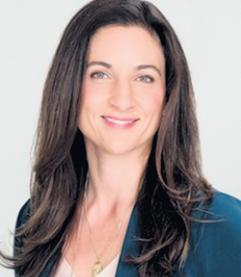
projects, special events, like the annual Shred Day, and employee giving campaign, helps us continue the work that we do to ensure that our neighbors will thrive.”
Pittsfield Boy Scout Troop 8 volunteered at this year’s event.
PITTSFIELD
The Practical Nurse program at Berkshire Community College was recently ranked No. 1 in Massachusetts and No. 1 in the United States for its fall 2023 cohort.
The ranking is based on a semiannual reporting of the percentage of graduates passing the National Council Licensure Examination (NCLEX) on the first attempt. At BCC, 100 percent of 2023 graduates of the PN program passed the exam on the first try.
The 2023 cohort at BCC comprised 17 first-time NCLEX test-takers, 100 percent of whom passed on the first attempt.
Associate Professor of Practical Nursing Katherine Polchlopek chairs the PN program at BCC, which BCC Dean of Nursing Lori Moon calls “a critically important program to our community.”
“BCC’s Practical Nurse program strives to educate students to become nurses with excellent communication and assessment skills, and the ability to critically think. Our goal is to graduate students who will provide compassionate care to our community and are dedicated to patient advocacy,” Moon said. “Our graduates far exceed expectations. We are so proud of them and of our program.”
The program at BCC is the only accredited Practical Nurse program in the Berkshires. The goals of the program, Moon said, include supporting students in successfully completing the program; a 100 percent pass rate on the


NCLEX boards on every student’s first try; and 100 percent job placement for each student after they are licensed.
PITTSFIELD
Berkshire Opera Festival
seeking general director
Berkshire Opera Festival is seeking a general director as Abigail Rollins, who has served as its executive director for five years, steps down.
Rollins is taking a new post as executive director of Berkshire Pulse, a Great Barrington-based dance and creative arts nonprofit.
The new position will be “responsible for planning, organization, and direction,” according to a job posting, with an emphasis on fundraising, staff management, fiscal oversight, revenue and developing the festival’s board of directors.
The year-round, full-time, Berkshire-based job pays $70,000 to $85,000, according to the posting, and applications are due Aug. 1 by email to leadership@berkshireoperafestival.org.
BOF, which was founded in 2014 by Artistic Director Brian Garman and Director of Production Jonathon Loy, is in its ninth season of fully staged opera and companion events, offering Charles Gounod’s “Faust” at the Mahaiwe Performing Arts Center this August.
It recently announced a long-term partnership with the Mahaiwe, and placed the new general director position among its recent milestones.
BOF recently hired an advancement associate and expanded its community programming. The company now wants to add a young artist program and bring back the second-stage productions it offered before the pandemic, according to the job posting.
“BOF’s annual budget is targeted to reach $1 million in the near term,” the job posting reports. “The company is poised for significant growth.”
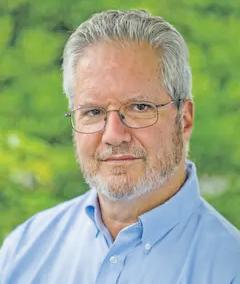
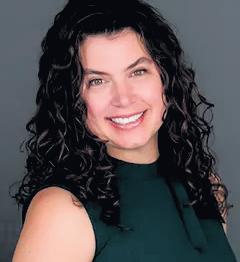

L







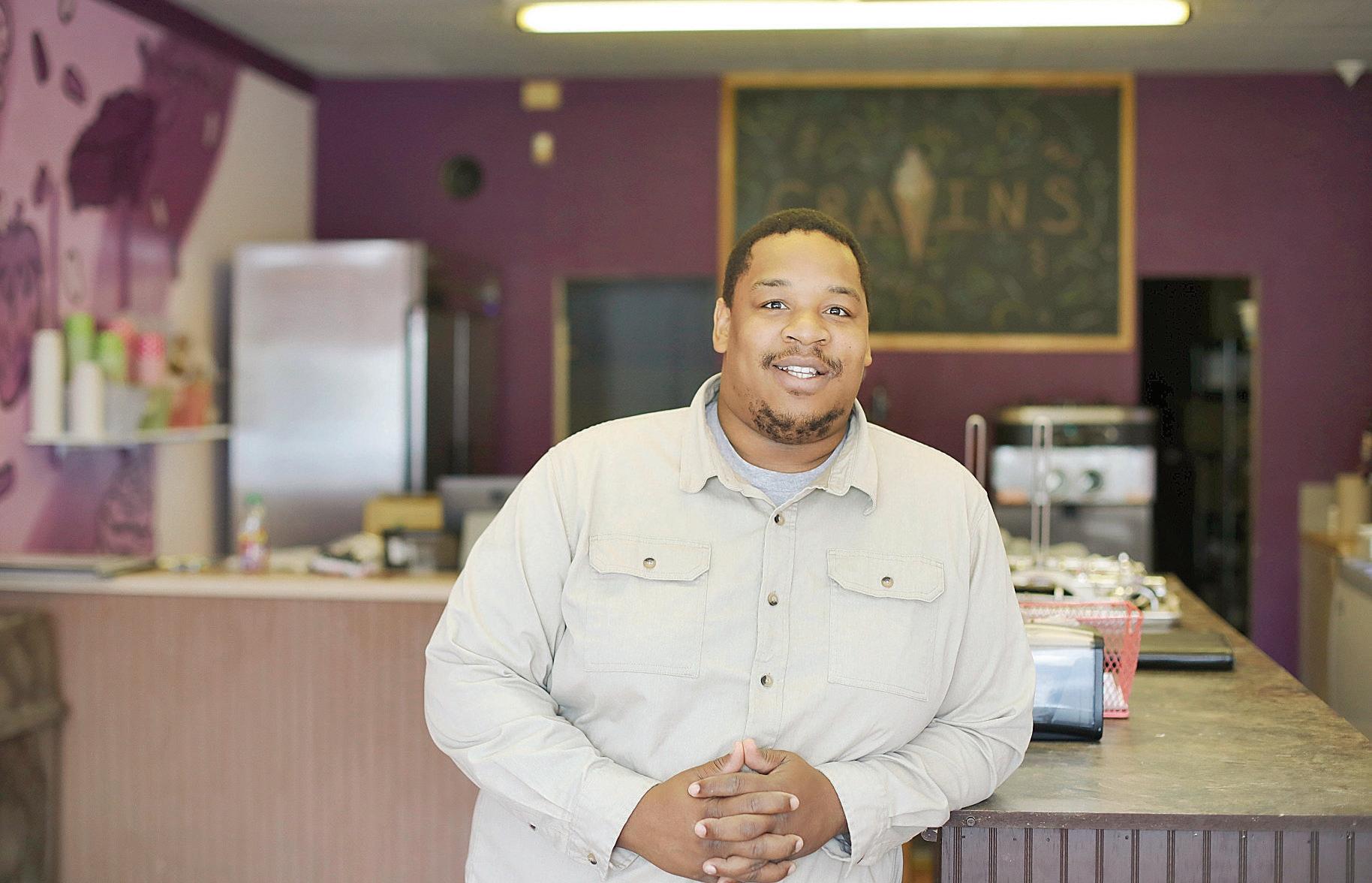

By ElliE Davis
The Berkshire Eagle
PITTSFIELD — Ludwig JeanLouis is used to facing challenges.
Jean-Louis purchased Cravins Soft Serve & Frozen Yogurt in May 2022, just over a year after his mother died, as a way of providing for his four siblings and grandparents.
His most recent challenge has been renovating his ice cream spot’s new space at 208 Elm St., which he opened last month.
Over the past year, JeanLouis had to look for a new location for his ice cream shop because the new owners of the building that housed the previous Cravins location at 119 Elm St. wanted to use the space for a nail salon.
Jean-Louis found a new location down the street, next to Dave’s Driving School. The space had previously been the ice cream and baked goods store, The Chocolatier, and after five years of being inoperative, the building still displays a decorative wooden ice cream cone on its western side.
“I saw the ice cream cone outside, and it was kind of like a calling — like a bat signal,” he said.
Jean-Louis got the keys to the store in September, and getting it ready for opening has been a daunting task.
“It’s like a David and Goliath feeling,” he said.
The shop’s current setup of countertops, barstools, and equipment is the sixth variation of how Jean-Louis planned to layout the space. He received a grant from the


Berkshire Black Economic Council to help fund the electrical and plumbing renovation, and he also invested in new flooring, painting and ice cream equipment.
“The biggest challenge is trying to be everywhere at once, but then having the energy to be present,” he said.
Jean-Louis relies on help from his three younger sisters and younger brother to pick up the slack.
“My sisters are very responsible, so I know I can rely on them to set the standard,” he said.
Jean-Louis’ younger brother, who is 19, is pursuing a degree in business management, and helping run Cravins has given him valuable hands-on experience.
“The person I butt heads with the most is probably my little brother, but at the end of
the day he’s the first person I can call,” Jean-Louis said.
“He’s my right hand.”
Jean-Louis also received help decorating the space.
A pew bench donated by a nearby church sits beneath the shop’s front window, and an Albany, N.Y.-based artist, Mercedes Soriano, painted a mural on the shop’s eastern wall. An artistic staff member, high school senior Maddalina Penna, also helped fill the space by painting an ice cream cone on a chalkboard that hangs over the store.
The new space gives the business room to grow.
Though Cravins previously served its ice cream out of a window and only operated during summers, Jean-Louis hopes to use the indoor space at the new location — and the heating and air conditioning that comes with it — to stay
open year round. He also hopes to fill the extra space with more dessert options and merchandise, such as sweatshirts and tracksuits.
Preparing to open the shop stretched into early June, and the community was eager for the the shop’s opening.
“Every two days a new person messages me asking, ‘When are you opening?’” Jean-Louis said.
Al Macrabie, who has worked at Dave’s Driving School for eight years, is happy to have a new business filling the neighboring space.
“Now we can go from the [Elm St. Java] in the morning to ice cream in the afternoon,” he said.
Store hours are from 11 a.m. to 11 p.m. Monday through Saturday and from 11 a.m. to 10 p.m. on Sunday.
413-496-6322 afiliault@berkshireeagle com
413-841-6789 413-496-6330 cmcclusky@berkshireeagle com Share
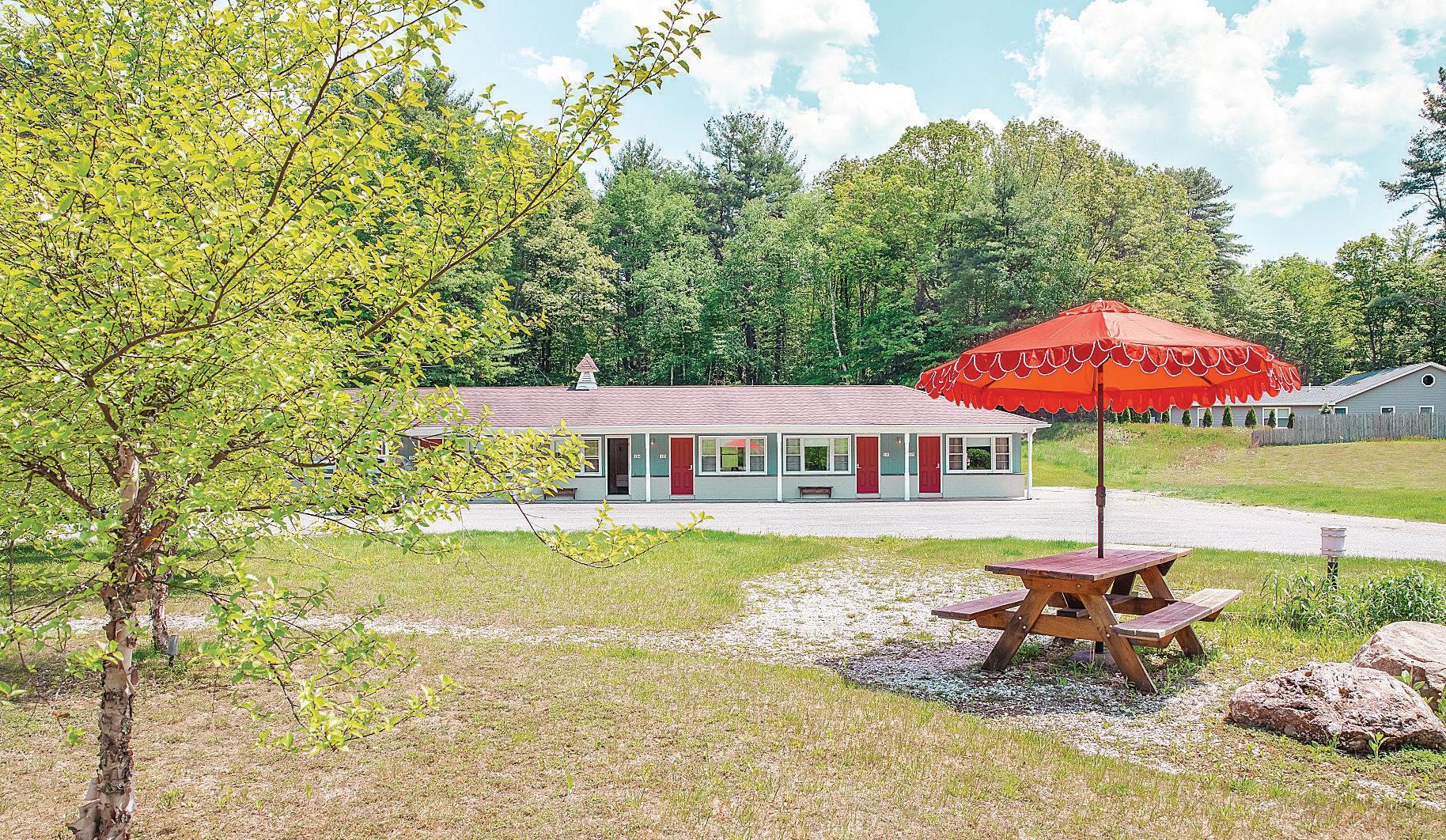
The former Briarcliff Motel in Great Barrington has been rebranded for the summer as the seasonal pop-up, The Little Lion, giving it a closer, more direct connection to the Red Lion Inn — “a mother lioness and little cub form of relationship.”
By ClarenCe Fanto
The Berkshire Eagle
STOCKBRIDGE — The historic Red Lion Inn has spawned a cub.
Main Street Hospitality, which operates the inn for the third-generation Fitzpatrick family, has rebooted and refreshed the Briarcliff Motel, its Great Barrington property.
The 16-room motel is now branded as The Little Lion, offering a more affordable experience by making available the amenities of the iconic Stockbridge hotel 3 miles to the north such as the swimming pool and dining credits.
SUMMER EXPERIMENT
The “summer season pop-up” has “nods to the vibe of The Red Lion but with a modern, fun twist” — modern motel rooms decorated with beloved pieces from the Red Lion’s archives. Its website positions it as a hub for activities, with links for fly fishing, hiking and biking adventures.
It’s an experiment of sorts, said Sarah Eustis, founder and CEO of Main Street Hospitality and third-generation managing owner of the Red Lion Inn. The Little Lion, with a refreshed look interior and outside, is branded as a “pop-up, almost a way of testing the market,” she noted.
Reaction from guests on whether it’s the right thing for the property will determine whether it will remain beyond October, or revert to the traditional Briarcliff moniker.
“It may well be a permanent approach, but we don’t want to alienate loyal Briarcliff guests,” said Eustis. “We’re going to try something, and we’d love feedback. It’s just a name, and the changes in the property are relatively subtle.”
“We’re not throwing away the Briarcliff motel sign,” Eustis told The Eagle in a phone conversation on Thursday. New signage heralding the arrival of the Little Lion is on the way.
She asserted that the Briarcliff, purchased by Main Street Hospitality in

STREET HOSPITALITY

2017, had been “lovingly restored” by Clare and Richard Proctor, the previous owners.
It has been a profitable investment, but the property needed a “light refresh, not a full renovation,” Eustis said. “It has maintained a great position as a kind of groovy, modern boutique motel. We have nurtured that identity through COVID, which made it even more popular because it was a more independent feeling of hospitality if you didn’t want to interact with other people.”
The Little Lion has nods to the vibe of The Red Lion Inn but with a fun twist — modern rooms decorated with beloved pieces from the RedLion’s archives. Sarah Eustis, founder/CEO of Main Street Hospitality, left, said the rebranding could become permanent if guest reaction is favorable.
But since 2020, she said, the thought has been to give it a closer, more direct connection to the Red Lion Inn and “more meaning in our portfolio family of properties — a mother lioness and little cub form of relationship.”
Eustis credited her team for the creative idea of reinvesting and renaming the Great Barrington site at 505 Stockbridge Road (Route 7). It’s set back from the highway in a bucolic hideaway near Monument Mountain and just above of the town’s bustling Barrington Plaza, the town’s northern shopping district anchored by Price Chopper, Marshalls and Tractor Supply Co.
INFUSED WITH CHARACTER
“The reason for doing this is not just repackaging something in a way that’s not authentic, she said. “Let’s try to take these very simple, clean motel rooms, let’s not sugarcoat it, but infuse them with a bit more character and with a few iconic things that people associate with the Red Lion — the idea of historic charm in a groovy motel, an affordable base camp in the Berkshires, a kind of summer-camp feeling.”
For efficiency, the motel’s booking system was connected to the Red Lion Inn for a seamless customer experience, along with a continuing commitment to competitive rates — currently $125 on weekdays and $205 on weekends through the first three weeks of June.
One of the new touches at the motel is the restoration of ball fringe curtains that once adorned the Red Lion from the Fitzpatricks’ County Curtains business. “It’s in honor of Country Curtains, and now we’re able to use these with a new fire-retardant application,” Eustis said.
“The idea is not to disorient Briarcliff guests but to invest in the property for aesthetics and functionality, refreshing the experience, less of a random property but more of a satellite of the Red Lion Inn,” she stressed. “It’s been a great addition to the portfolio.”
The Red Lion Inn and its Maple Glen and other adjacent buildings include 125 rooms. Main Street Hospitality operates Hotel Downstreet and The Porches in North Adams. Race Brook Lodge in Sheffield is a family property managed by Casey Rothstein-Fitzpatrick, Eustis’s brother.
Founded in 2014, the Main Street Hospitality Group includes hotels in Newport and Providence, R.I., as well as in Hampton Bays on Long Island, N.Y., the Chebeague Island Inn overlooking Casco Bay in Maine, and Port Cunnington Lodge in Dwight, Ontario.
Clarence Fanto can be reached at cfanto@ yahoo.com.

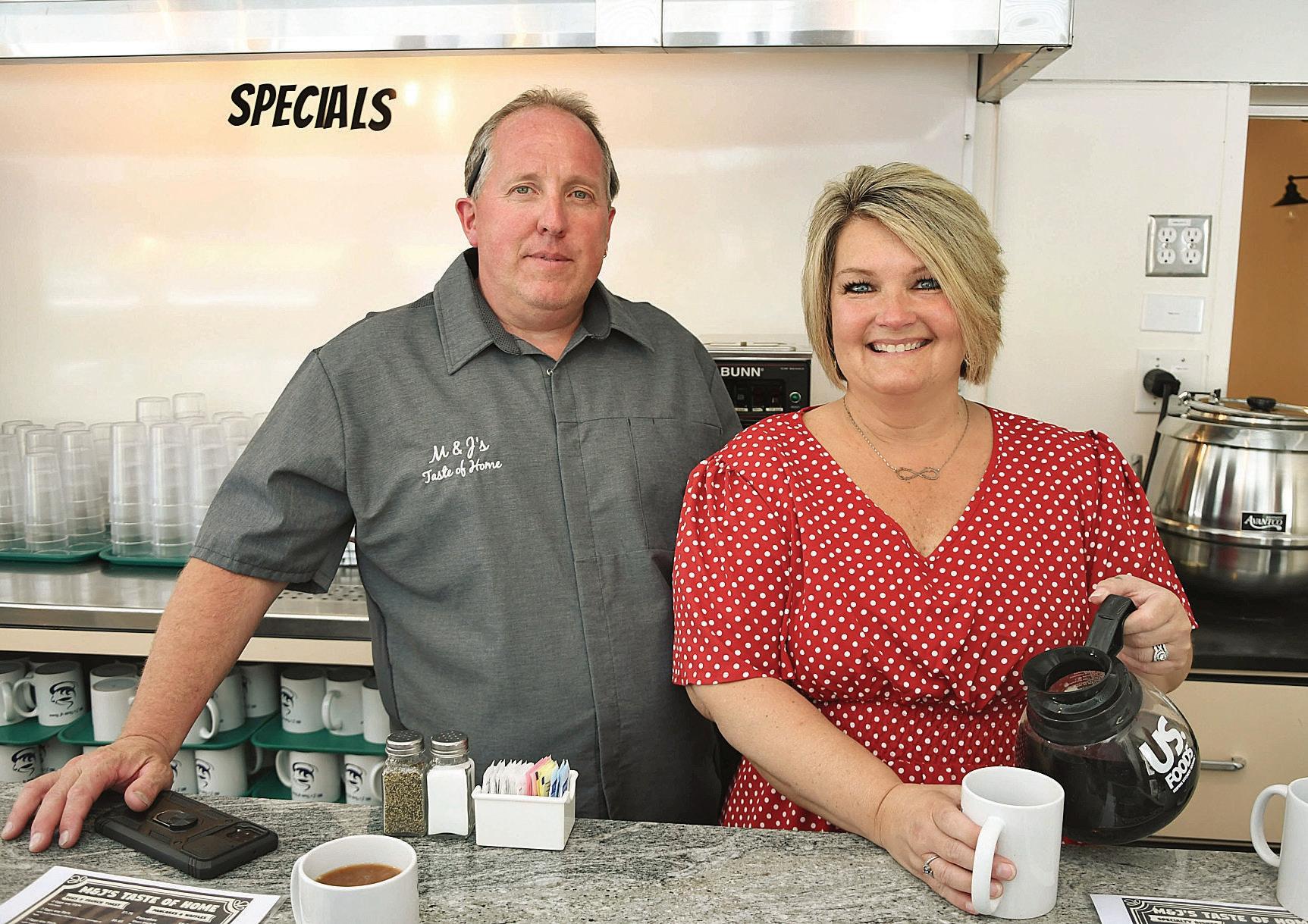
By Sten Spinella
The Berkshire Eagle
ADAMS — For the first time in more than a year, the former Miss Adams Diner dining car will no longer be empty.
M&J’s Taste of Home will run its breakfast and lunch spot out of the former Miss Adams Diner building beginning Wednesday, proprietors Mark and Jeanne Lapier announced at a ribbon-cutting event Tuesday. The chief objectives, according to Mark, are to “keep the lights on, pay the bills, and make a lot of people happy with good home cooking.”
A fixture in downtown Adams, the Miss Adams Diner building has been vacant for more than a year, after the property was seized due to debts of the previous owner, North Adams City Councilor Peter Oleskiewicz. The Lapiers are still in the process of buying the building from David and Deanna Atwell’s RMR Enterprises; the deal likely won’t close until October. In the meantime, the restaurateurs are paying down their purchase price of $80,000.
Adams residents have long awaited a steady business to go inside the dining car built by the Worcester Lunch Car Co., which has hosted different businesses since 1949. When M&J’s announced on Facebook that they’d be back, the response on social media was staggering.
“I can’t even put into words how exciting this is, and how
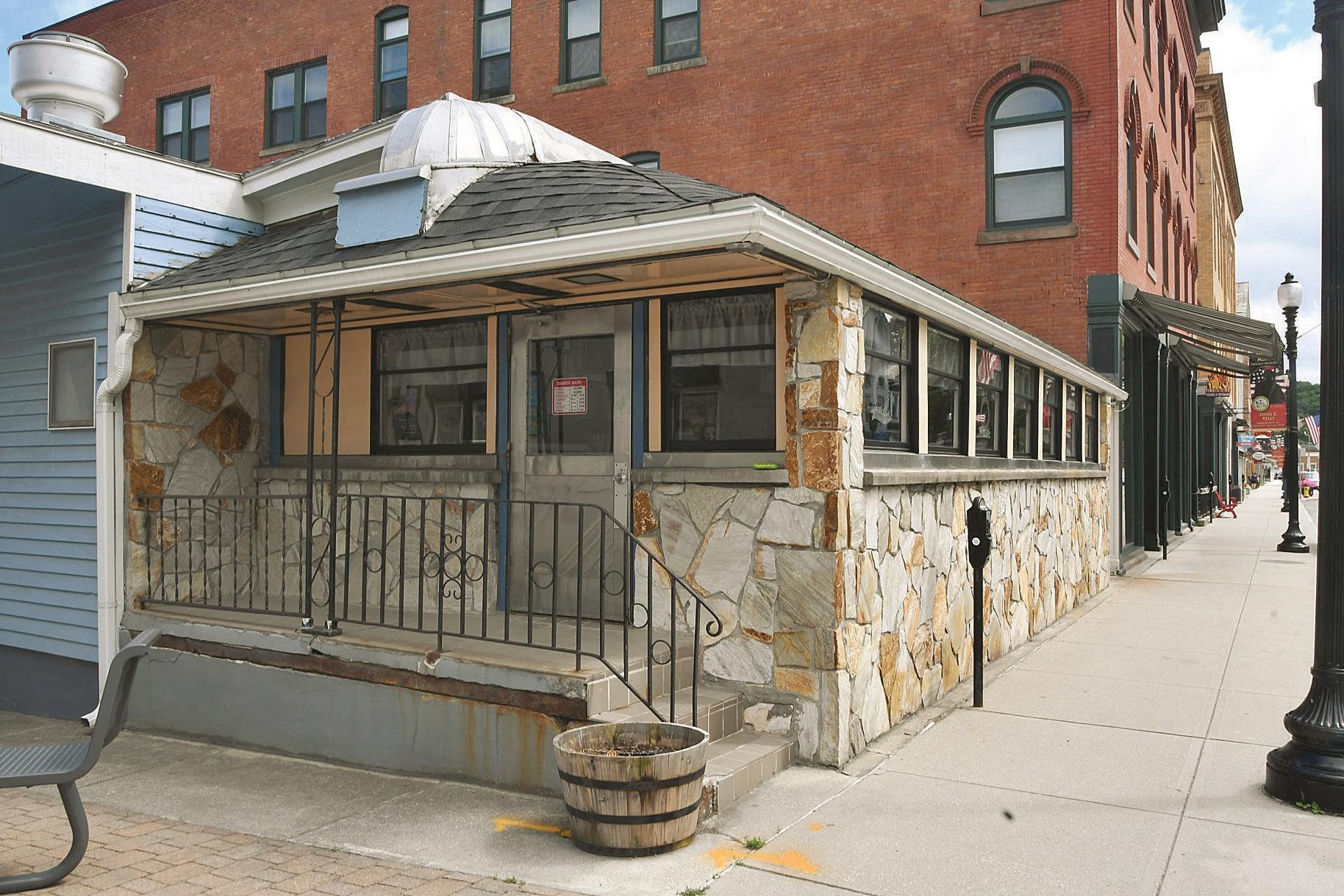
much support we’ve gotten,” Jeanne said while flanked by elected officials and town staff Tuesday. “I hope we serve everybody to their expectations.” Town Administrator Jay Green, Select Board Chairperson Christine Hoyt, and newly elected Select Board member Ann Bartlett all were in attendance, along with a few local business owners, to celebrate the Wednesday morning opening. Green said he and others
are excited to see businesses like M&J’s fill out Adams’ downtown.
“This building itself is iconic,” Green said. “It doesn’t matter the name, what matters is the spirit and humanity and welcomeness inside there.”
Mark and Jeanne have already established M&J’s Taste of Home as an occasional popup restaurant and catering business. They will continue that aspect of their business
in a possibly limited form. The restaurant will be open from 6 a.m. to 2 p.m. Monday through Saturday, and 6 a.m. to 1 p.m. Sundays. There will be breakfast and lunch every day except Sunday, which will just serve breakfast.
Counting the Lapiers, a staff of seven will keep the 49-seat joint running, with four out front, two in the kitchen and a dishwasher.
The Lapiers have completed
a deep clean of the property. As Mark put it, “a couple steps below Hazmat-level.”
“It had just been neglected for years. Everybody who had opened in there was a turnkey operation,” Mark said. “You’d come in here and eat and there would be five-gallon pails catching the water. No one fixed the roof, that was the first thing I did before I did anything. It was literally raining in here.”
The plan is for the eatery to come back as an old-school diner, with something like eight constantly changing daily specials and a robust permanent menu that includes different types of French toasts, pancakes, eggs Benedict, sandwiches and specialty dishes.
Jeanne compared the brickand-mortar setup to the couple’s food trailer.
“The trailer itself is a 30-foot kitchen, so it’s got a full line, but this is obviously so much nicer,” she said. “There’s no dishwasher in the trailer; you can put a halo on that here. I’m loving the dishwasher.”
The expectation for opening day, Jeanne said, is a full dining car.
“Almost our entire staff will be on tomorrow. I’d like to think we’re prepared,” she said on Tuesday. “If everyone who says they’ll be here at 6 a.m. is here at 6 a.m., it’ll be a rush.”
Sten Spinella can be reached at sspinella@berkshireeagle.com or 860-853-0085.
By HeatHer Bellow
The Berkshire Eagle
PITTSFIELD — To Akinyemi Blackshear, the dream of opening a nightclub for dancing in the Berkshires seemed like an impossibly heavy lift.
Now, not so much.
After participating in an intensive leadership program steered by the Blackshires Community Empowerment Foundation, the plan seems less daunting. Blackshear now has “achievable goals.”
He’ll start in September with pop-up dance parties across the county. That way he’ll be able to gauge interest and get feedback, before he begins to set his sights on a physical space.
“In my mind it was this big project,” said Blackshear, a marketing project manager at Theory Wellness in Great Barrington, “and they made it much more reasonable.”
Blackshear and 13 other participants who attended the Blackshires Leadership Accelerator program for Black and Indigenous People of Color celebrated their graduation recently at The Colonial Theatre. The celebration was timed also to kick off the Juneteenth holiday.
Pittsfield Mayor Peter Marchetti also presented Blackshires with a city proclamation declaring June 14 Blackshires Leadership Accelerator Day. It says program graduates and affiliates are “beacons of hope and catalysts for positive change.”
The Blackshires foundation is “here to empower and enrich the Black community in the Berkshires and surrounding areas,” according to the nonprofit.
The accelerator program gives guidance and support to “emerging leaders” in the Berkshires. The idea is to help build connections and boost their various projects or businesses, as well as create an “accessible on-ramp” into a variety of leadership roles, Blackshires Executive Director John Lewis told The Eagle.
And not just for business ideas and visions.
“One of the biggest reasons why we did this,” Lewis said, “is there was kind of a lack of diverse representation on boards and commissions in municipalities. It’s often the same people serving in the community.”
The program creates a “talent pipeline for organizations to pull from,” Lewis added.
The accelerator started 15 weeks ago with a two-day retreat at the Berkshire Innovation Center and moved to weekly sessions that included workshops, coaching and oneon-one mentorship.
The foundation has supported its participants over the last two years with more than $100,000 in scholarships and stipends. Numerous Berkshires businesses and organizations as well as the state have fueled these coffers.
Other major financial support this year came from Berkshire Bank Foundation, 1Berkshire, and Jose Greene of the Crane family.
A slew of community leaders are involved and supporting these initiatives.
“We are big fans,” said Laura Brennan, assistant director of the Berkshire Regional Planning Commission, which has been in-


The foundation has supported its participants over the last two years with more than $100,000 in scholarships and stipends.
volved since the beginning. “We try to just serve as a matchmaker between the [participants] and the resources and agencies throughout the county.”
“They have ideas that are very fundable either through private sources or government sources,” Brennan said.
SEEING THE FRUITS
Some, like Twink Williams Burns, are already seeing the
fruits of the program after “flailing around on my own as an entrepreneur who doesn’t know what they’re doing.”
“I’ve been very busy,” she said last week, crediting the leadership program. She noted the uptick in work as a professional genealogist and ancestral heirloom seed purveyor.
Williams Burns was already busy — she’s the strategic adviser for admission and finan-
cial aid community engagement at Williams College.
She’s also landed new contracts, including a job working on the design of the Francis Avenue “parklet” overhaul on the Westside, and its accessible path down to the Big Y and CVS shopping areas. It will have special plantings of fruit trees and berry bushes, she said, that will be “nourishing to the community.”
Psychotherapist Christine Bile is steadily working to increase her workshops for women 18 and up in her Young Black Women’s Confidence Network. She’ll be hosting her
2024 Graduates of Blackshires
Leadership Accelerator
Christine Bilé
Sharron Frazier-McClain
Alÿcia Bacon
Chynna Williams
Natale Monroe
Luana Dias David
Akinyemi Blackshear
Twink Williams Burns
Starr Richardson
Wonjara Campbell
Kenneth Campbell
Cheryl McCrae
Jazmin Simone
Aisha Baptiste-Gilmore
second gathering in July at The Collab on North Street.
Bile, who also is a professional musician, said her program is meant to fill a needed gap for “adult women.”
“We need nurturing, too,” she said. “There’s a lot of programs out there for kids ... I’ve just learned so many evidence-based modalities that I feel would be helpful to provide in a group setting for women.” Blackshires, she said, helped with a stipend and marketing. She found the networking particularly “wonderful.”
“It’s been great,” Bile said, “to give us people of color access to these higher powers that be, [and] to share our ideas and find ways to collaborate.”
Heather Bellow can be reached at hbellow@berkshireeagle.com or 413329-6871.
By Sten Spinella
WILLIAMSTOWN — With new chefs, new food, a new menu and a new name, Plates is ready for Williamstown.
Pera Mediterranean Bistro is now Plates Mediterranean Bistro, after Mel Sari took ownership of the restaurant.
Sari closed the restaurant around March and reopened roughly two months later in order to make time for renovations.
“I changed the entire restaurant indoors, the new bar wall’s built, decorations are up, we changed the coloring, renovated the entire kitchen, and everything in the back or the front has been updated,” Sari said.
The restaurant opened back up in May, just in time for graduation and alumni weekends.
As for Fahri Karakaya, who previously co-owned Pera with Sari, she said, “I think he’s at the age that he wants to slow down, and it was good fortune for me to be able to take it over. That’s what I do. I worked in hospitality for the last 30 years.”
Sari has been in the Berkshires for 13 years, and originally came to the county to work for The Porches Inn, where she is general manager. How is she going to do that and run a restaurant at once? “I’ll try my best,” she said.
Sari said she sees much potential for the restaurant, noting its “perfect” location on Spring Street among several eateries offering healthier options.
Apart from the name, that’s the crux of the change at Plates — more varied, lighter offerings from around the Mediterranean.
“We do have pasta, too, but people are looking for lighter Mediterranean food with no carbs,” Sari said. “Greek cuisine doesn’t have so many carbs, mostly vegetable-based things, much lighter, with olive oil. In our restaurant, we only use olive oil because that’s what Medi-
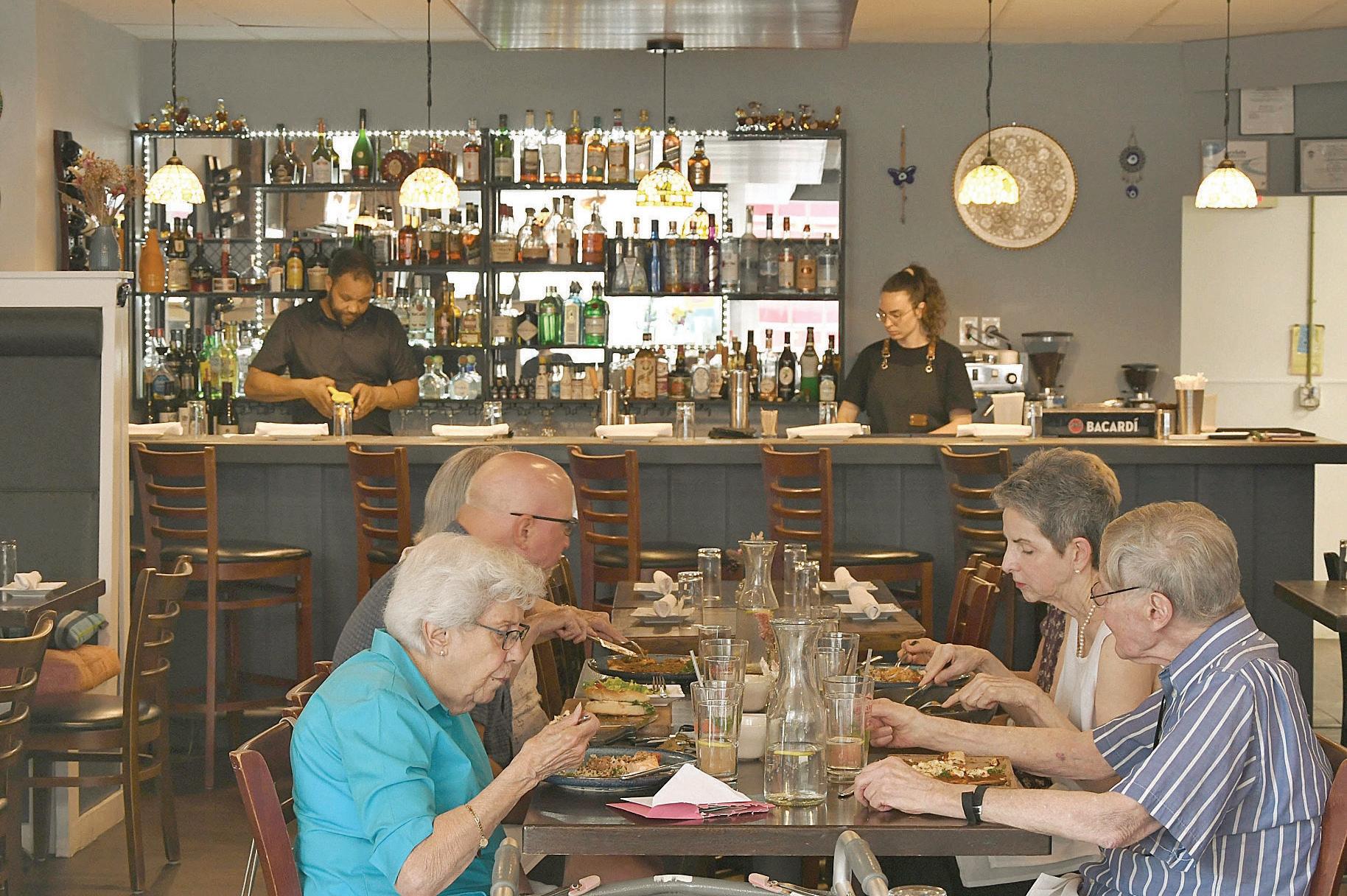
terranean is.”
Sari said the restaurant’s new focus is expanding beyond Williamstown, whether traveling patrons or people from further away in the region. That said, Plates hopes to maintain its regular customers, and has done so thus far.
In its prior incarnation as Pera, the restaurant focused on Turkish and Middle East cuisine. Now, it represents
more Mediterranean cultures, Sari said. “There’s something for everybody now, Lebanese, Greek food, Italian food, you still have Turkish, but now we can accommodate anybody,” she said.
“That’s why we made all these changes,” Sari continued. “We have two great chefs. The executive chef is from New York, and the sous chef is from Chicago. They both know the industry well.”
The new chefs are Carlos Huasasquiche and Harpal Singh. Sari has years of experience in hospitality and food service, but this her first time owning and running a restaurant. “I love being in the Berkshires,” she said, “and I love being in this area with this restaurant because people like to eat healthy.”

BY JANE KAUFMAN
The Berkshire Eagle
Last fall, a new concept in Berkshire County farmers markets rolled out one day a week to three locations to sell locally grown produce and locally sourced staples.
Launched using a three-year U.S. Department of Agriculture grant worth $890,293, the Berkshire Mobile Farmers Market visited so-called food deserts — like in Becket where the nearest grocery stores are miles away — and places where food insecurity, exacerbated by lack of transportation to a market, like in Pittsfield and North Adams. The mobile farmers market gets produce to people who need it.
Over the course of the inaugural 10week run, 1,300 people shopped the mobile farmers market and the majority, 69 percent, went home with free or lower-cost groceries through a fair-share payment system. Meanwhile, the Berkshire Mobile Farmers Market supported 27 regional farms through wholesale buys totaling $31,532.
The Berkshire Mobile Farmers Market will visit six sites this season, adding Monterey, Adams and a second location in Pittsfield.
Operated locally by Berkshire Bounty, Berkshire Grown and other partners, a mobile farmers market retail manager
71,880 acres, with the average farm working 153 acres. Most range in size from 10 to 49 acres. Market value of the agricultural products sold was $38 million with total farm production expenses at $35 million. Net cash income to farmers was just $471,000, according to the 2022 Census data.
The 2022 Census reported that 26 percent of Massachusetts farmers were selling directly to consumers — at farm stands, in community-supported agricultures or at farmers markets.
During the COVID-19 pandemic, the farmers market model had to pivot to prepaid orders online, home delivery and single-shopper experiences.
The pivot “reconnected people with a local food system because the conventional food system was essentially broken by COVID,” Schultz said.
Customers that Schultz picked up during the pandemic pivot are still coming back to his booth.
“What people want is freshness, flavor, quality and diversity that they just can’t find anywhere else other than the farmers market, and the people who come there are willing to pay for it,” he said.
While Red Shirt Farm has had SNAP certification for several years, it’s only had Massachusetts’ Healthy Incentives Program certification for three. It’s been worth it, Schultz said. Sales have gone up — at both the North Adams market and at the Pittsfield winter farmers market. Sales have also been more consistent and with a returning loyal customer base.
Schultz estimates 30 to 40 percent of sales on any given market day are subsidized.
“We are committed to food access for all of our customers,” Schultz said. “And for a while early on, before we had either one [SNAP or HIP], we were trying to keep our prices really low to allow people who wanted our food to be able to get our food. But now with these programs, we can charge what we need to charge, more like the retail market rate, without having to be overly worried that we’re excluding folks from being able to eat our food.”
Schultz grosses between $3,000 and $4,000 daily in the summer at the North Adams Farmers Market.
Since 2022, Berkshire Agricultural Ventures has run The Market Match Fund, which it describes as “an economic development and food access program, designed to provide a consistent, annual funding stream to match
drives the van full of produce to a site, sets up a tent and opens for business.
The need for food across Berkshire County has risen in recent months, according to Morgan Ovitsky, executive director of Berkshire Bounty.
Berkshire Bounty serves 29 food pantries and reports a 32 percent increase in the number of people seeking free food at the end of 2023 compared to the beginning.
Feeding America is a nationwide network of food banks, food pantries and local meal programs. The organization tracks food insecurity rates — which the U.S. government defines as “limited or uncertain access to adequate food” — in the United States. Its 2021 estimate put Berkshire County’s rate of food insecurity at 8.9 percent, which translates into 11,500 people living here.
“Several things lead us to believe this number is much higher now,” Ovitsky said.
She points to the end of federal stimulus money that funded the Supplemental Nutrition Assistance Program emergency allotment, along with an influx in immigrants, inflation and the high cost of food.
Jane Kaufman is Community Voices Editor at The Berkshire Eagle. She can be reached at jkaufman@berkshireeagle.com or 413-4966125.

The Berkshire Mobile Farmers Market will visit six sites this season, adding Monterey, Adams and a second location in Pittsfield.
customer SNAP benefits at Berkshire-area farmers markets.” The Market Match Fund is at 10 farmers market locations in the Berkshires, including North Adams, Pittsfield and Sheffield farmers markets. In 2022, it distributed $116,500 to 10 markets, and increased that support to $141,500 in 2023.
Rebecca Busansky, executive director of Berkshire Agricultural Ventures, said the program supports 135 farmers, who otherwise might not be able to accept SNAP payments for their produce.
Busansky said the state’s Healthy Incentives Program and Berkshire Ag’s Market Match Fund have been an “economic development boon” to farmers and communities.
The subsidies are helping people like Donna Richards. She took the bus from Adams to a recent farmers market in North Adams. She was carrying a bag with handles to bring home groceries. Facing health issues, “I have to eat a certain way,” she said. Richards said she uses her electronic benefits card to buy as often as she can, while acknowledging “it’s expensive.”
Beginning in late June when the Berkshire Mobile Farmers Market van visits Adams on Fridays, Richards won’t have to travel quite as far to get organic produce if that’s her preference. Adams will have its own, albeit smaller, mobile farmers market. She also might be able to purchase more too — since Berkshire Regional Transit Authority has a policy holding riders to a three-bag limit.
Jane Kaufman is Community Voices Editor at The Berkshire Eagle. She can be reached at jkaufman@berkshireeagle.com or 413-496-6125.

Berkshire Mobile Farmers Market schedule
2024 Berkshires Mobile Farmers Market locations, schedule
The Berkshire Mobile Farmers Market delivers fresh, locally farmed and sourced produce and other foods to areas of the county where markets are few and far between and/or where there’s food insecurity. The market is open to all and it o ers a FairShare Payment System that works for shoppers on a budget. For more information: berkshiremobilefarmersmarket.org.
Going into its second season, the 2024 Mobile Farmers Market opens June 25 and runs through Oct. 18, having expanded its locations and the length of its season. The schedule is as follows.
The Berkshire Mobile Farmers Market is a van that delivers fresh, locally farmed and sourced produce to areas where markets are few and far between and/or where there’s food insecurity. The market is open to all and it offers a FairShare Payment System that works for shoppers on a budget. The Mobile Farmers Market opens on June 25 and runs through Oct. 18. The location schedule is as follows.
CHP Parking Lot
19 Depot St., Adams Fridays, 11 a.m. to 1 p.m.
North Adams Armory 206 Ashland St., N. Adams Thursdays, noon to 2 p.m.
Second Street, Second Chances 264 Second St., Pittsfield Wednesdays, 3 to 5 p.m.
18 Degrees
480 West St., Pittsfield Thursdays, 3 to 5 p.m.
Park Pavilion, Town Hall 557 Main St., Becket Fridays, 3:30 to 6 p.m.
Community Center
468 Main Road, Monterey Tuesdays, 12:30 to 3 p.m.

It ’ s why we ’ re here We’re here for you.

By Jane Kaufman
The Berkshire Eagle
For culinary entrepreneurs like Brian “Swifty” Josephs and Jenny Klowden, a farmers market booth in North Adams has been a winning ticket for Door Prize, their “roving restaurant” and catering business.
Before coming to North Adams, Josephs and Klowden lived in San Francisco where they worked in the food industry. They had hoped to open a restaurant in the Bay Area.
When the husband and wife team came to grips with the expense involved in starting up a restaurant in San Francisco, they moved to North Adams in the summer of 2021. After visiting a friend in North Adams the year before, the couple were inspired and found it affordable to give their business dreams a go in the Tunnel City.
The couple started as a pop-up restaurant, with a nine-month residency at Mass MoCA. That led to Door Prize, their catering business, which also has a booth by the same name at the North Adams Farmers Market.
Josephs calls their Door Prize booth at the North Adams Farmers Market their “roving restaurant.” From it, they sell soups, sourdough breads, scones, hummus, pickled produce and other culinary creations. Here, Josephs said the farmers market booth has been the entree for Door Prize’s catering gigs, which is the most lucrative segment of his business model, throughout the Berkshires.
While their ultimate goal is to open a bricks and mortar restaurant, Door Prize’s farmers market booth is the storefront that attracts customers to their catering service. Catering customers often request a particular dish off the catering menu because they liked what they sampled at the farmers market booth.
In the summer, the Door Prize booth grosses about $750 to $1,000 a day, ac -
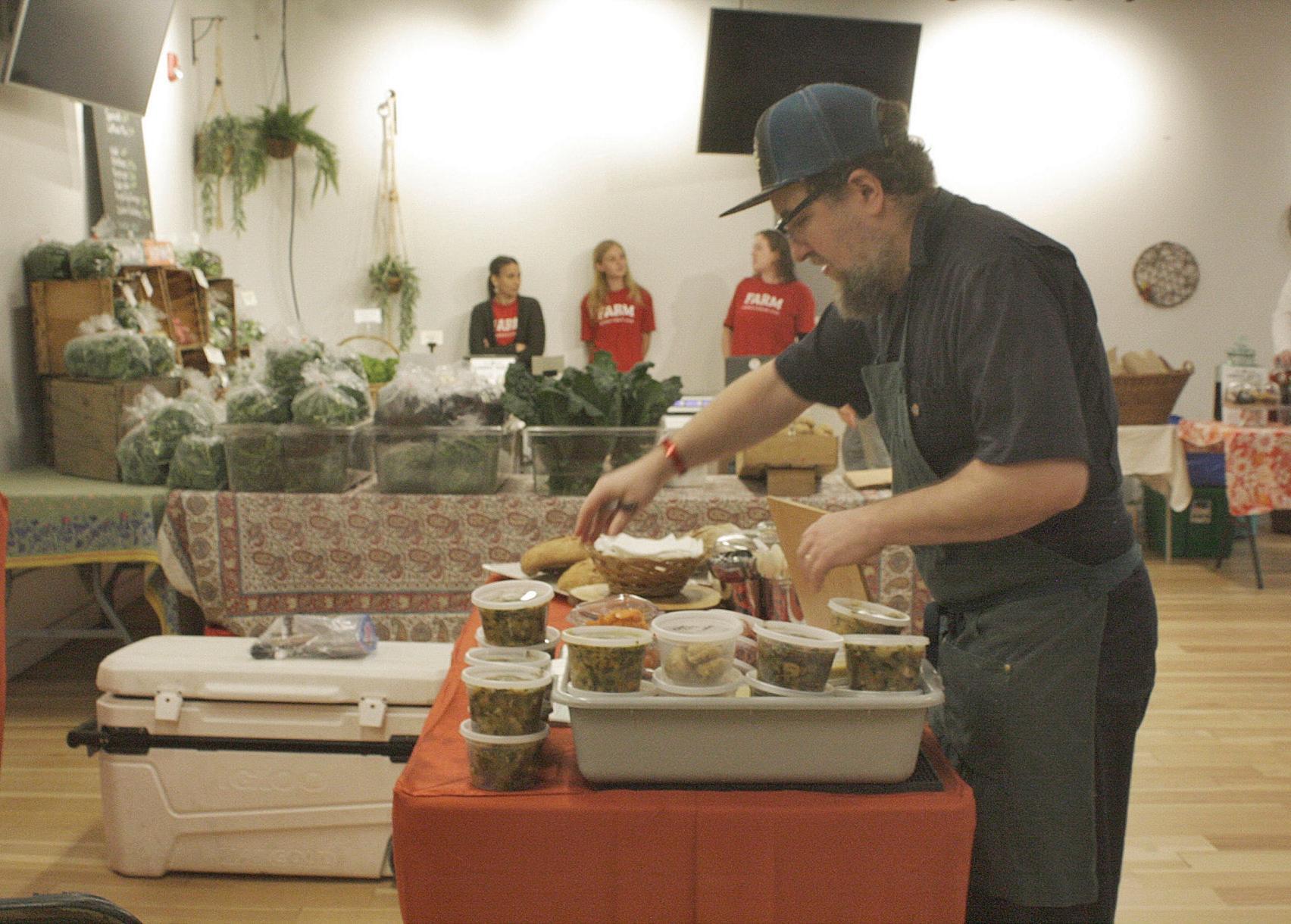
cording to Josephs. Wintertime farmers markets yield about half those amounts, but Josephs said the business exposure is valuable as is the connection with farmers who produce his ingredients and with the community that shops at the market.
“There is this remarkable history of farmers markets, of these public domains, as being incredible entrepreneurial opportunities,” said Edith Murnane, executive director of Mass Farmers Markets. “And it is how a lot of people get started. There are some peo-
ple who stay within the farmers market community, and then there are those who actually grow beyond it.”
Jane Kaufman is Community Voices Editor at The Berkshire Eagle. She can be reached at jkaufman@berkshireeagle.com or 413-496-6125.













Brandon Pollock, CEO of Theory Wellness in Great Barrington, said that being able to accept credit cards could increase his business’ revenues by 30 percent. “We should be able to accept credit cards,” he said. “McDonald’s, next to us, accepts credit cards. It’s kind of ridiculous.”
FROM PAGE 1
bis retailers.
Currently, section 280E of the Internal Revenue Code prohibits any businesses that deal with the trafficking of Schedule I or II substances from counting standard business-related expenses as tax deductible, other than the cost of the goods sold. Rescheduling cannabis to Schedule III would allow cannabis retailers to deduct standard business expenses — such as rent, payroll, insurance, and electricity — from their taxes, as most other businesses do.
Brendan McKee, CFO and COO at Silver Therapeutics, which has a retail dispensary in Williamstown, is frustrated by how the IRS policy has limited the proportion of expenses that his business can deduct from its federal taxes.
“Even though you’re paying [your employees], you’re being taxed as if you didn’t have that expense,” he explained.
Pollock estimated that the retail side of Theory Wellness — which had an estimated revenue
of $54.2 million in 2021 from its location in Great Barrington — pays an effective tax rate of 70 to 75 percent of profits, whereas the effective tax rate of a non-cannabis retail business could be less than half as much.
“[280E] has been a huge factor for us,” he said. “It’s very unfair in our view and has greatly increased the burden of tax. I can’t imagine any other business that could function with the tax rates that we do in this industry.”
McKee says the current tax burdens associated with 280E are keeping many cannabis retailers in the red, and he expects its removal to increase his business’ profits by 15 to 20 percent.
“Eighty-plus percent of cannabis companies right now are not profitable,” he said. “With 280E going away, I think you’ll start to see cannabis companies get closer to 20 percent net income.”
Rescheduling also has the potential to increase cannabis dispensaries’ access to financial services. However, definitive change in dispensaries’ access to banking services requires
Some dispensaries in the Berkshires have also had to pay community impact fees of up to 3 percent of gross sales to their local towns to offset potential public expenses related to the sale of legal cannabis, though dispensaries are fighting these fees.
Pittsfield settled a lawsuit in May by paying back $780,000 in community impact fees to three retailers, and on June 25 the City Council amended its code to add more regulations surrounding when and how host communities can charge cannabis retailers community impact fees, such as requiring an itemized list of expenses incurred.
With two lawsuits filed in March, dispensary owners in Great Barrington are following the example of the Pittsfield suit, arguing that their businesses have caused no additional public costs and demanding refunds for the fees they have paid.
legislative action, said Attorney Michael Ross of Prince Lobel and co-chair of the firm’s cannabis group.
Federal anti-money laundering laws stipulate that banks cannot make transactions with money from illegal sources, including cannabis sales.
“The way they’re looking at it … it’s like this big bucket of money, and our dollars or even our employees’ dollars are taint-
ed dollars that contaminate their whole bucket,” Pollock said.
Some of Theory Wellness’ employees have been unable to obtain a mortgage because banks consider their money “tainted dollars.”
In 2014, the government provided guidance on how banks might legally provide financial services to cannabis businesses, though most major banks still avoid the hassle and legal risks.
Most Massachusetts dispensaries can access limited banking services through small local banks and credit unions in states that have legalized recreational cannabis. But these businesses have to pay higher than normal fees, and accessing banking becomes complicated when businesses have retail locations in different states.
Theory Wellness’ Massachusetts locations use Needham Bank, though their other locations have to use different banks depending on the state in which they operate.
“We do have a local bank, which is good, but we don’t have that many options,” Pollock said.
Attorney Michael Ross says that rescheduling could prompt more banks to do business with cannabis-related companies.
“When you have a product that is as illegal as heroin, it’s difficult for a bank to get behind it,” he said. “When that product becomes as regulated as pharmaceutical drugs, I think it’s a completely different story.”
However, for banks to have


full legal protection in dealing with cannabis businesses, Congress must pass legislation, such as the SAFER Banking Act, which would prevent federal banking regulators from penalizing banks for doing business with state-sanctioned cannabis businesses.
“The Banking Act would probably be the most effective tool for federally chartered banks to participate in the industry completely,” Ross said.
More flexibility with banking could allow customers to pay using credit cards, instead of paying in cash or using a debit card with dispensaries’ cashless ATM withdrawal units. Pollock estimates that allowing credit cards could increase his business’ sales by 30 percent.
Pollock also hopes that the change will enable his business to receive capital from private equity firms and investment funds that have historically been unwilling to invest in a federally illegal substance. Larger cannabis businesses, Pollock noted, have turned to filing initial public offerings on the Canadian Stock exchange.
As Massachusetts Cannabis Control Commissioner Kimberly Roy noted in an email, because the rescheduling acknowledges cannabis’ medical use, it will also allow for more investment in cannabis research. Roy is hopeful that Massachusetts, with its present biomedical research infrastructure, can be a global leader in this field.
Other potential benefits of rescheduling, according to Ross, include giving cannabis businesses bankruptcy protection and federal trademark rights.
Amid all the potential financial benefits, rescheduling could undermine Pollock’s cannabis cultivation business by opening cannabis sales across state lines. Cultivation centers on the East Coast can’t compete in a national market with cannabis grown in more favorable climate conditions in California or Oregon, he said.
A FEDERAL ‘HANDS-ON’ APPROACH
While rescheduling could bring a host

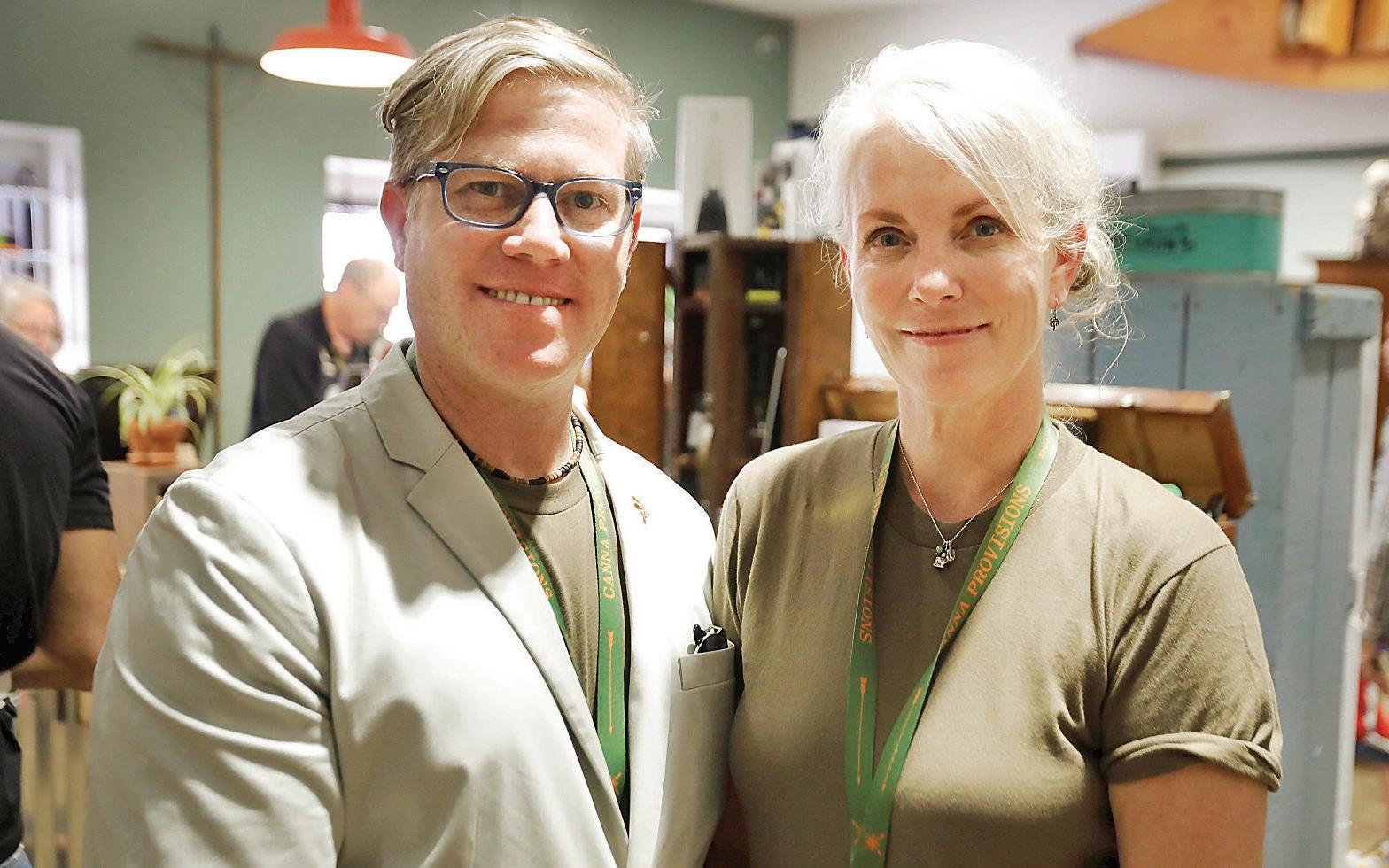

of financial benefits, classifying cannabis as a Schedule III drug could also prompt more regulation from the federal government, because all regulatory controls applicable to Schedule III substances would apply to cannabis.
The Controlled Substances Act includes regulation applicable to Schedule III




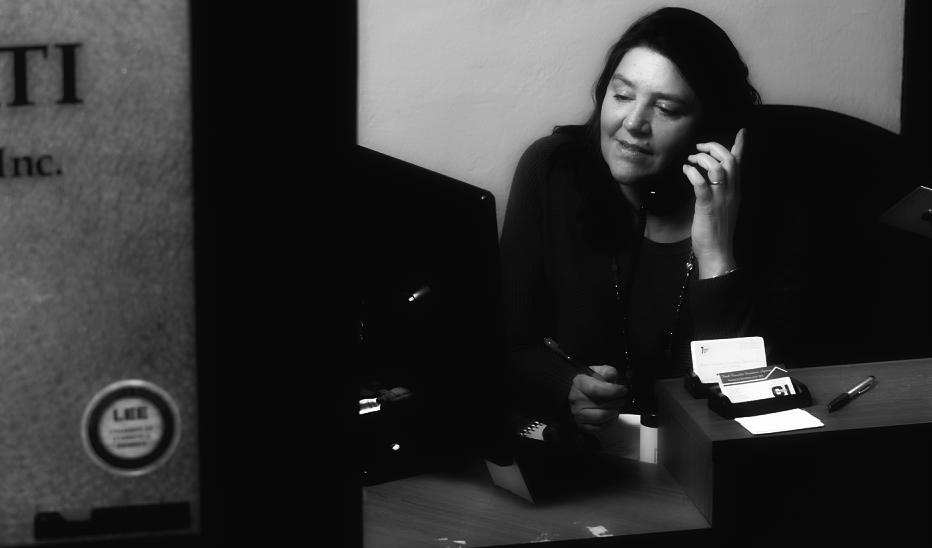

drugs, and the DEA might take on the role of setting quotas of how much cannabis can be legally distributed. The most federal oversight, however, could come from the FDA’s required approval of all Schedule III drugs for prescribed medical use.
“There’s the potential that this could mean much stricter regulation and labeling and oversight,” said Williams, of Canna Provisions. “[The federal government is] pretty hands off. This will be a federal government hands-on.”
In the most extreme case, this might mean that the pharmaceutical industry would become the main source of medical cannabis, instead of dispensaries. But ex-
perts and dispensary owners hope that the federal government won’t require FDA approval for all cannabis products that are already on the market.
“I don’t know if it’s feasible or viable for the FDA to come in and have that kind of involvement. … I think it’d be really challenging,” said McKee, of Silver Therapeutics.
“It’s really hard to envision over 30 states with laws that are already in the books being completely rewritten by some omnibus federal legislation,” Ross said.
Williams’ ideal scenario isn’t rescheduling cannabis to Schedule III. He’d like the government to treat cannabis like a nutraceutical product available in a grocery store or pharmacy aisle.
“There are still tens of thousands of Americans who right now are medical refugees going to states in order to get life saving medicine that they or members of their family need,” he said.
To Williams, rescheduling also falls short because it fails to address social justice concerns that have been at the forefront of previous legalization efforts. He’s especially frustrated that rescheduling won’t impact prior drug convictions.
“While [rescheduling] is really exciting, there are still thousands of people sitting in prison right now for nonviolent drug offenses,” he said.
Ross believes that rescheduling will lessen the number of future drug convictions, but shares Williams’ frustration that the change won’t help those serving time for drug charges.
“It’s a real shame that rescheduling could happen … and yet people could still be sitting in jail over previous cannabis crimes,” he said. “That is a huge problem.”
Ross predicts that the DEA will issue its final rule by November. Until then, many questions will remain unanswered for those in the cannabis business, though owners are optimistic.
“It’s a lot, a lot up in the air, even though it is, ideally, a positive step in the right direction,” Williams said.







By Taylor Brokesh
A new service called Get on Board is matching individuals who are looking to parlay their expertise with nonprofit organizations who are looking for that expertise to fill positions on their boards of directors.
The service is the result of partnership between the Nonprofit Center of the Berkshires and Berkshire United Way, as well as the Berkshire Taconic Community Foundation and 1Berkshire.
The service is a fit for people who are seeking to volunteer, but who may not know for whom or what, said Liana Toscanini, executive director of the Nonprofit Center of the Berkshires.
Vice-versa, nonprofit organizations seeking board members benefit from the matchmaking service.
Organizations and individuals begin by answering questionnaires.
For organizations, it’s about the needs they require. For volunteers, it’s about the skills they have and what kind of organization they would like to participate in, and how, exactly, they would like to participate.
Then, Get on Board begins the matchmaking process, which centers around conversations with the volunteers.
“It has to be a real conversation with individuals because this takes time,” Toscanini said. “We’re not using AI to match people or anything. It’s a personal, one-on-one thing.”
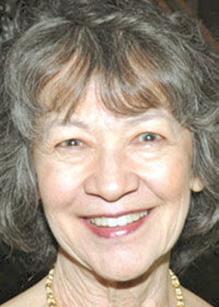

Maggie Buchwald, the architect of Get on Board, serves on the board of directors for the Mahaiwe Performing Arts Center in Great Barrington.
Buchwald said she knew many Berkshire County nonprofits are in need of board members, so a program like Get on Board makes sense for the region. She pitched the idea to the Nonprofit Center of the Berkshires last year.
“I just thought, if there were some organization to connect those interested in board service with organizations looking for board members, that would augment the many existing volunteer programs that there are,” Buchwald said.
The program officially launched in April.
Diana Wall was interested in joining a board and so she became directly involved with Get on Board. She is one of the people who meets candidates, evaluates their skills and interests, and then goes about matching them with a suitable nonprofit based on its needs.
“I share with them what I know about those organizations … and we talk through which of them feels like a fit,” Wall said.
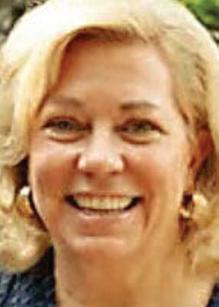
Leigh Doherty was Get on Board’s first match.
Already the executive director of another nonprofit, the Literacy Network, Doherty said she wanted to join another board to have a greater impact in her community.
In January, because of her background in education, Doherty was matched with the Flying Cloud Institute, a nonprofit based in Great Barrington that offers engaging STEM lessons to public school kids through art.
“It feels like a light-lifting way to help your community,” she said. “I just think, if it’s something you’re passionate about — the cause, the mission, the purpose of the organization — it’s kind of exciting to volunteer in that way.”
Toscanini explained numerous benefits to joining a board, including learning new skills and making new friends.
“You get to work with a group of like-minded people to achieve something, which is very rewarding,” she said. “You’re giving back to your community, which we know from scientific fact that volunteering makes people happier. It lowers their blood pressure.”
Peter Taylor, president of the Berkshire Taconic Community Foundation, said nonprofits benefit from the service.
“The board of directors serves, at any organization, as a direct link to the community they serve,” Taylor said. “And it’s an essential
Ideal Commercial Location:
Building One at the Lenox Commons, Located on rt 7/20 with 35,000 cars passing per day! Easily accessible with a traffic light located at the entrance. Directly across the road from the Marriott Courtyard Hotel.
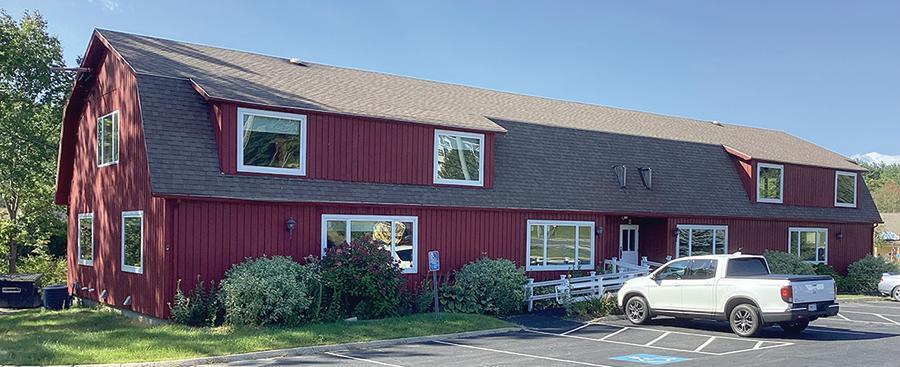

Berkshire Medical Center Family Practice, Berkshire OBGYN, Ultra Wellness Center, Antimony Brew Pub, Chocolate Springs, On a Roll Café, ZenQuest Marital Arts, Trillium, Krol & Nazarov, PC ,T Fox Hair Design, Chez Pet Supplies , PSSP and Edward Jones
Building One has 6,900 Sq. Ft: Ideal for Professional Medical Services - We can Subdivide

attribute of good governance to have diverse perspectives from the community to be able to make decisions around strategy, resources and overall oversight of the organization.”
A major problem Get on Board is attempting to address, Toscanini said, is the lack of diversity on nonprofit boards. A 2019 study from Board Source, a nonprofit-focused research agency, found that three out of every four board members were white.
But “the nonprofit need,” in general, “is never-ending,” Toscanini said.
Get on Board had made a dozen matches as of late June, but about 50 nonprofits have submitted questionnaires and are looking for volunteers.
“There is this phenomenon in the volunteer world where people get excited and sign up because they’re reading about it or hearing about it,” Toscanini said, “and then all of a sudden, life happens.”
And Pittsfield has the second-highest concentration of nonprofits in the country, below only Barnstable.
“I think the desire [for growth] is there on both sides,” Toscanini said, “but we just didn’t really have a great structure for it.”
Toscanini said one does not need previous experience on board to be qualified to join one.
In fact, she said, most people aren’t sure what they bring to the table in the beginning, which
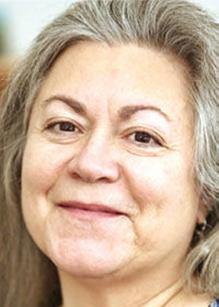
is why Get on Board helps people determine their signature skill or what their “thing” may be.
“Maybe you’re a good organizer. You can help the office clean out 25 years of files taking up all their storage space,” Toscanini said. “Maybe you can help organize the nonprofit volunteers. You could become the volunteer coordinator, just because you’re a coordinated person.”
Buchwald said there can be misconceptions about joining nonprofit boards, and she hopes they can be dispelled through this program.
“The average commitment for boards is maybe four to five hours a month, unless you become very involved in a committee, which would be at your choice,” Buchwald said. “The common myth that you have to be rich is just that, a myth. We’re looking for your brains much more than your money. And you will not be obliged to ask anybody else for money unless you want to.”
In the end, though, Toscanini said, joining a nonprofit board is really a job cut out for someone with a strong desire to make their community a better one.
“For people who are curious, who are everyday people, this kind of opportunity to lead and learn is quite rewarding,” Toscanini said.
For more information, visit ncpberkshires.org or reach out to Toscanini at 413-441-9542 or liana@npcberkshires.org. Toscanini




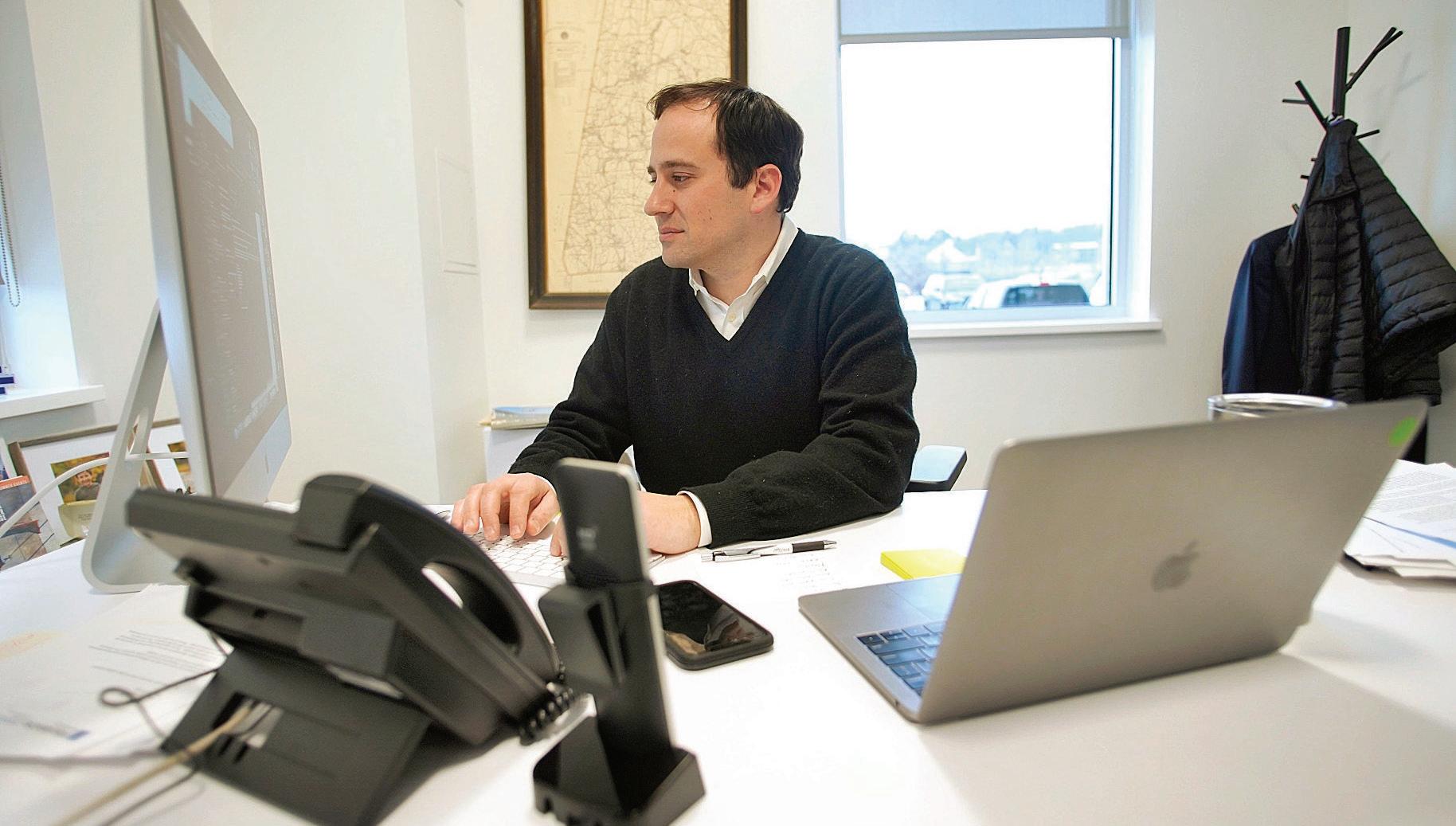
This month marks five years for me as executive director of the Berkshire Innovation Center. Time certainly does fly.
I vividly recall my first introduction to the project and the visionaries who led the way, as well as my first tour of the new facility, at that time it was merely a skeletal construction site rising from the earth. What struck me was the breadth of partners involved, the passion of the founding board members, and the flexibility of both the building and the organization.
I saw a project with massive support and potential. I also saw a team that would allow me to put my thumbprint on what we were going to build together. I was filled with excitement; the future seemed bright for this place.
When I accepted the new role, my wife and I had a 6-month-old baby that was still settling into our household. That baby — Henry — is headed to kindergarten next year and the BIC, like Henry, has grown and flourished despite some unforeseen challenges, including being forced to navigate a global pandemic. Both Henry and the BIC are now in growth mode.
Attending a recent preschool graduation prompted some added reflecting on my youngest son Henry’s first five years of life. Now, I’ll use this column to reflect a bit on the BIC after five-plus years and note where we have come and share where we see opportunities both for the organization and Berkshire County.
When we talk about the BIC, we talk about three key pillars that drive the work we do: learning, technology and community.
Learning is core to everything we do at the BIC. As a team, we have a deep passion for learning and stress in our own principles the need to always be learning and iterating to
improve. In the work we do with both area students and the employees of our regional firms, we talk about “learning in the fringe” — standing up educational programs that exist in the space between what we see in traditional academic classrooms and what we see with on-the-job training programs.

During COVID, we started an experiential learning program for high school students that is rooted in project-based learning coupled with tours and mentoring from industry professionals in our local community. To hit a younger audience, we opened our doors to school trips and created unique hands-on experiences that inspire students through topics such as renewable energy and 3D printing. We focus on making learning practical and fun and aim to leave students itching for more.
In service to our regional firms, we have partnered with MIT to create the BIC Manufacturing Academy, which features a core program focused on developing the next generation of leaders. This program, led by our chief learning officer, Dennis Rebelo, is having a flywheel effect — its success is breeding new and related programming and is influencing all of our learning efforts.
Flexibility, adaptability and collaboration remain key to how we work to serve the county. As an independent nonprofit, we can move quickly based on what we hear from our partners in industry and academia. We can also iterate quickly to continue to improve and be responsive to the voice of the customer — be it student or adult learner. We can collaborate without restriction with a variety of educational partners, from regional elementary schools to world-class research universities. Operating from the fringe allows us to pilot programs and fill gaps where we see them.
When I look ahead, the most
exciting part is the new collaborations on the horizon. This includes strengthening existing programs with existing partners, building new programs with new partners, and, perhaps most importantly, engaging the alums who have gone through our programs and who are now eager to give back to future learners.
When we talk about technology, we are focused on how regional firms, students, and educators can leverage technology for good — to drive our economy forward to and address the world’s most pressing challenges, from combating climate change to curing diseases.
The global pandemic impacted every aspect of our lives, but the science that was developed to produce the vaccines was groundbreaking and over the next several years we will see it revolutionize the way we treat all types of diseases.
The climate crisis is perhaps our generation’s greatest challenge, but it is also proving to be a catalytic driver of innovation in terms of how we create, store and transmit energy. These are just two examples, but many researchers and entrepreneurs in Massachusetts are leading the charge as new technology is developed and deployed.
When we talk about the BIC as a hub for technology, we aren’t just talking about equipment we may have on site; we are talking about serving as a connection point into the larger ecosystem in the commonwealth.
Without question, our people are our greatest asset and our greatest natural resource. When we talk about community, we talk about
building connections, creating opportunities to collaborate and learn from one another, and offering opportunities for a “return on collision.” The vision is for the BIC to be a constant hive of activity for innovators, entrepreneurs, technologists and those interested in technology-focused career opportunities.
Over the last five years, we’ve seen that “hive” come alive — there is now an active center of gravity that is pulling people in. People are coming to events, trainings, or open houses, or are being referred by friends and colleagues. Some of these people are new to the region, but the vast majority have been here long before the BIC was constructed. The line of creators, innovators and entrepreneurs runs deep. The BIC is a center of gravity to give them a place to congregate and connect.
Five years in, I feel the center of gravity getting exponentially stronger every year. More and more people and firms are engaging and as they do, more opportunities open up. As a team and as a community, we need to be very adept at turning this energy and opportunity into meaningful actions that drive real economic growth in the region.
I’m extremely grateful for the opportunity and proud of the foundation we’ve laid. The founders of the BIC had a bold vision to create an economic engine that could transform the county, and I’m very fortunate to hold and share the reins in the organization’s early days. But these are still early days; the vision remains bold and there is still so much work ahead of us. I thank all those in the community who have helped us to this point and look forward to continuing to dig in with all of you as the next five years tips off.
Ben Sosne is executive director of the Berkshire Innovation Center.
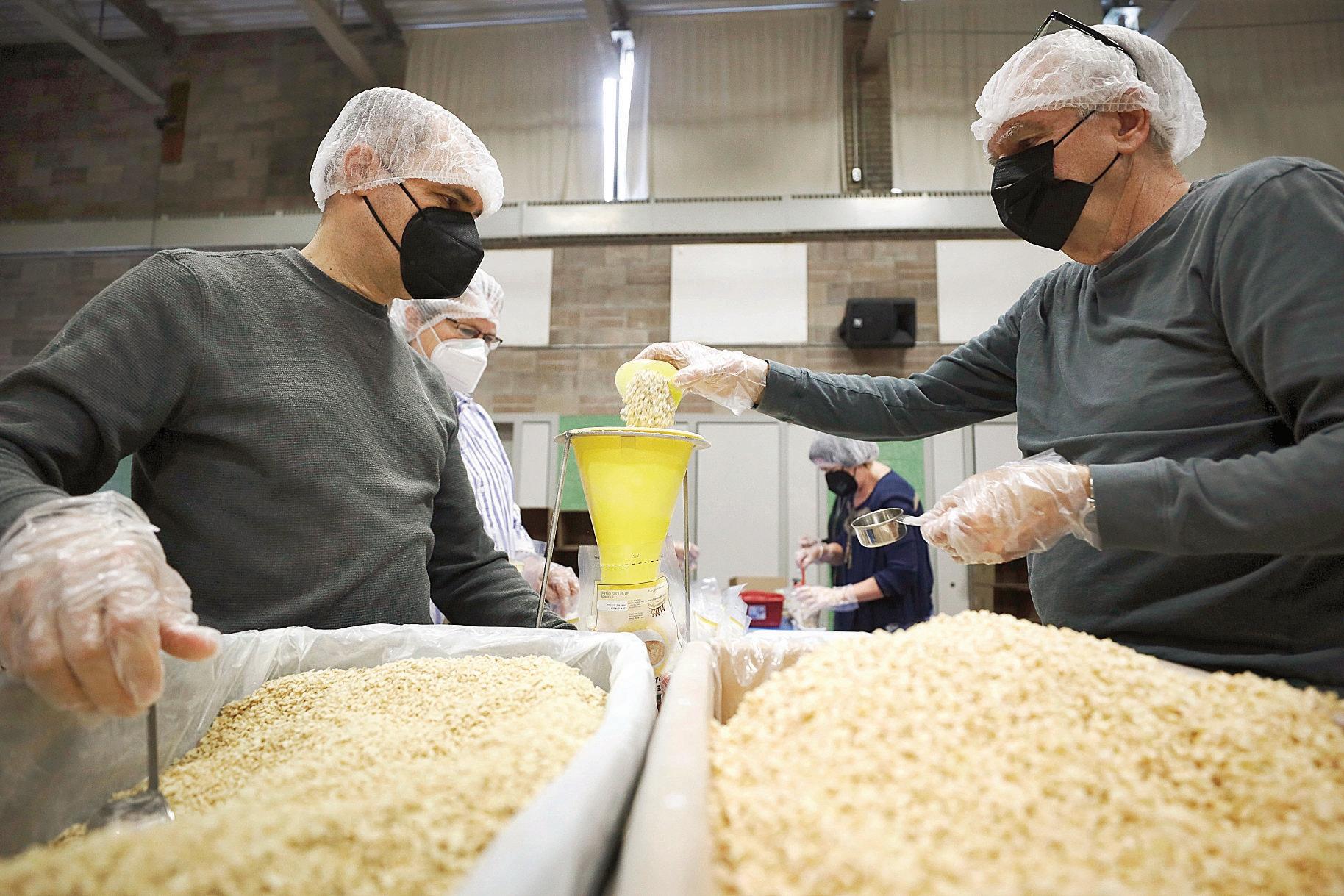
In 1924, a group of dedicated community leaders and volunteers came together in common purpose to help support their friends and neighbors in need.
Through changing times and circumstances — as well as a few name changes along the way — their commitment and legacy remain strong.
Today, the movement they started 100 years ago continues its vital and vibrant work under the stewardship of Berkshire United Way.
There is no great secret to our longevity; however, it’s safe to say we’ve learned a few important lessons along the way.
First, none of us can do this work alone. Berkshire United Way is a team effort. Our team consists of our dedicated board and staff, funded partners and donors, and the countless volunteers who work alongside us, support our mission, and help us constantly learn where we can make the greatest difference for people in our community.
The second lesson is everything comes around. Over the decades Berkshire United Way and our partners have stepped up time and time again to address household stability, school and career readiness, youth engagement and empowerment, community health and well-being, and so much more. Each generation faces and responds to these challenges and opportunities according to the circumstances of their time, and we remain committed to answering the call of this moment in our history.
Third, as times and circumstances have changed, our commitment to equity has grown stronger. While we know there is no end point or finish line in an equity journey, we recognize that each person’s unique set of circumstances affects their experience living in the community. We also realize that building a community where everyone can thrive begins with acknowledging and understanding the barriers people
face and then working with our neighbors to remove or mitigate those barriers.
Fourth, time and talent are invaluable assets. We are grateful to know we make a positive difference through our Volunteer Center and partnerships like the Get On Board project we launched this spring in collaboration with the Nonprofit Center of the Berkshires. We know that the dedication of people willing and motivated to share their time and talent provides invaluable support to local organizations and inspires other people through their example. The great thing about volunteer service is that it’s egalitarian, multigenerational — and fun!
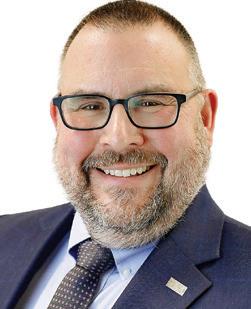
Tom Bernard Nonprofit Notes
sic needs and face barriers to economic prosperity.
• Next, families and children need greater access to support services to navigate ongoing stress, financial uncertainty and other challenges.
• Finally, that people in the community expect Berkshire United Way to lead efforts to enhance the social service infrastructure, increase access to information, and foster intentional and inclusive collaboration.
in building and strengthening their quality of life. We will approach this area of opportunity as learners first, working to understand how our existing resources and relationships can support individual and community needs.
Household stability: This is the foundation and starting point of Berkshire United Way’s commitment to a thriving Berkshire County. We want to help ensure everyone in the community has equitable access to economic prosperity and stable, secure households.
Finally, young people are our most precious resource and the key to a thriving future. Early learning and youth development have been and remain central priorities for Berkshire United Way. There is a vital link between access to child care, quality education, and economic opportunity, one that remains as important today as it was a century ago. Our responsibility as stewards of Berkshire United Way is to learn from the past, adapt to the present, and make big bets on how we can help shape the future of Berkshire County — together.
Since I joined Berkshire United Way in 2022, our team has been working to understand the needs of the community and to understand what the community needs from us. In 2022, we conducted a community survey to understand what was happening in the community and what people in the Berkshires needed from Berkshire United Way.
That survey identified several key themes:
• First, that due to income equality many Berkshire residents struggle to meet their family’s ba-
This work led us to be one of the first organizations in Berkshire County to adopt a trust-based philanthropy model and general operating support funding strategy. This is an emerging best practice that addresses historic inequities in philanthropy and empowers the nonprofit experts who are doing hard work every day. We’re currently coming to the end of the first year of a two-year pilot and the results are promising.
These findings also helped us review and reframe our strategic priorities as we move into our second century of positive community impact. Going forward we will focus on three essential priorities: School and career readiness: {span style=”font-size: 16px;”}Our aspiration here is that every child and young person in Berkshire County will have a strong foundation for future success. To achieve this, we will remain laser-focused on early childhood education, continue to promote pathways to career and college for young adults, and deepen our support for educators whose work educates and inspires learners at every level.{/span}
Mental health: This is our newest priority and one that came to the surface in many conversations with our community partners. We want to be part of the work to ensure all residents are healthy and supported
There is ample evidence demonstrating that when we focus first on helping people meet their basic needs, meeting their higher order needs comes into clearer focus. This also is important because the success of a community is directly related to the financial stability of its members.
Taken together, these strategic priorities reflect our commitment to the following vision:
When you have access to the services and support you need to be safe, healthy and financially secure, you can achieve your goals.
In some ways this vision brings us full circle to the origin of our story of people banding together to support the community. Today, our commitment to open pathways of opportunity for everyone is as strong as it was in 1924. I know we will make progress the way we always have — together!
We have much to celebrate and I invite you to join us at Pittsfield’s First Fridays at Five event on Aug. 2 as we say THANK YOU to our incredible friends and neighbors!
One hundred years of service is an incredible milestone for any organization; it is such a privilege and responsibility to be part of the Berkshire United Way team at this historic moment.
Tom Bernard is president and CEO of Berkshire United Way.
It may seem odd to be thinking about winter in the middle of July. But after what we saw as a region this largely snowless winter past, all can agree it was tough.
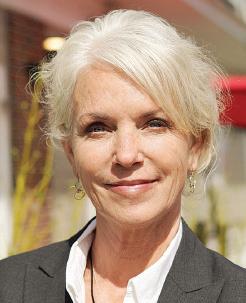
Meg Sanders Cannabis Corner
Cannabis felt the financial sting just like restaurants and shops and hotels did from the lack of tourism the snowy season usually brings. But we are happy the tourists are back and are flocking to our store, and they want cannabis in the Berkshires. Now however, we’re in the throes of what looks to be a promising summer for Berkshire businesses. But we can’t lose sight about the season that stares us down again, where we need to lean into creating new reasons to come here in the wintertime.
So what do we do as a community — as cannabis businesses, hospitality businesses, event space businesses, and all businesses — to get out ahead of what is becoming the new normal of winter in the Berkshires. I’ve spoken with many businesses in Lee, Lenox and Stockbridge that echo this sentiment.
Thanks to climate change and our shrinking outdoor winter season, the economic strength of our colder months can no longer fully rely on the winter attractiveness of outdoor events and activities.
As cannabis retailers we count on
skiers and the snow-sport economy just like the restaurants and mountains do. And as one could expect, the regional areas out here that count on outdoor winter tourism and sports haven’t seen the numbers that normally mark a successful season.
Which is why it feels odd to be discussing this in the boom times of July, when the tourists are back, and businesses can feel emboldened after last winter and the hit most felt. But it is now a challenge all businesses in the region share, including Berkshires cannabis retailers.
The time is now to discuss what to do about it, and how to reinvent the winter season with limited outdoor recreation. For an economy that was relying on three seasons we simply must offset that. I welcome any and all suggestions. We firmly believe it’s never a bad strategy to work with those that work with you. So how do we collectively elevate the health of our economy six months from now?
I’m not writing from the perspective of answers, but from the place of questioning. I’d like to find the answers like everyone else. Perhaps local media can work to orchestrate and hold business roundtables, tapping into the braintrust of the Berkshires to reexamine our existing assets and repurpose their uses. Maybe local leaders can begin talks now about how we use existing venues for more live events in the winter months. We simply have to work together to reinvent winter now, in the likely case we don’t
Thanks to climate change and our shrinking outdoor winter season, the economic strength of our colder months can no longer fully rely on the winter attractiveness of outdoor events and activities.
have snow then.
We partner with and promote The Mount in-store as a venue for our wellness series of free yoga and sound bath events, which helps pull in some of the pure cannabis tourists we get due to our location just off the highway exit. We sponsored a big beer and cornhole event at Bosquet Mountain this spring, driving attendees and ticket sales to them, as well as new customer acquisition for us.
But perhaps more outdoor winter events could extend their shelf life, as we create new events and indoor and outdoor winter markets at forward thinking and willing venues. At the Locker Room in Lee for instance, we sponsor live music and can directly see the way in which our existing customers patronize the other’s, and each get new customers. There needs to be more of this creative thinking, and dare I say, more venues for seeing local live music and ticketed performances in the winter season. There are plenty of examples of successful outdoor winter events in tourism heavy markets. By utilizing the spaces we have, and
simply thinking creatively about how to make them more winter friendly for the tourism economy, talking with local vendors and businesses about new ways to get people to break cabin fever six months from now is the duty of a responsible local business leader. If we continue to make the most out of every season that our collective customers come here for, we will figure this out. Partnerships as always prove to be an incubator for all parties involved, and I urge local cannabis companies to think creatively, both for their business health and for the health of the hyperlocal economy. When everything from new customer acquisition, to reciprocal deals between local businesses, as well as brand exposure to each other’s customers demonstrates core values alignment between the businesses of the region, that’s when real magic can happen. And when we are a local cannabis industry staring down what has been suggested as over 30,000 illegal cannabis dispensaries in NY state, right at our figurative doorstep, makes the need for winter magic all the more imperative for our collective success, if not survival.
Meg Sanders is CEO of Canna Provisions.
Please allow me to set the record straight on recent reports regarding the National Association of Realtors proposed court settlement and its impact on buyers, sellers, and Realtors.
In August, offers of compensation made by seller’s brokers to buyer’s brokers will be removed from the MLS property database. While they can continue to make those offers, the MLS will no longer store the data or aid in the communication of that offer.
very clear that real estate commissions are, and have always been, negotiable.
In Berkshire County, the contract between the seller and their agent has a blank line where their fee is negotiated when setting the terms of sale.
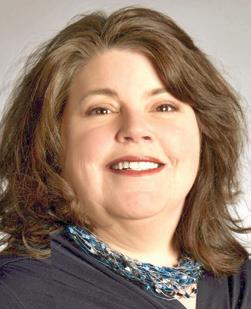
Additionally, Realtors working with buyers will be required to execute an agreement that lays out the terms of their relationship, whether brief or lengthy. This is to ensure buyers and their agents agree on the services to be performed and the compensation options available. Sellers have long signed exclusive agreements with Realtors for the marketing and sale of their home, and now buyers will be afforded the same commitment.
All of our existing Berkshire contracts meet these requirements — and are
In this agreement, cooperative compensation paid to agents working with buyers is also represented contractually by a big blank line for negotiation. This is now and will continue to be an important part of the listing strategy, and determined individually in every contract between the seller and listing firm. That will not change going forward.
Another misconception is that the seller was forced to pay a buyer’s agent in the past. As noted above, sellers allowed their agent to share a portion of their compensation with others to attract buyers to their property.
This is reflective of a marketplace where the buyers bring the money to a transaction and the sellers bring the equity, and
financing restrictions have an impact. All professionals — Realtors, lawyers, lenders — are paid from the closing proceeds of the transaction which is very clearly set out in a closing disclosure notice designed to ensure everybody’s full understanding.
Prior to the settlement, entering a property into the MLS did require a statement of how much compensation is offered to the successful buyer’s agent. That offer to compensate range was zero dollars to infinity, but the MLS did mandate “some number” was entered in the database so that buyers would know exactly what is included in the offer price and how to negotiate. Is the refrigerator included, is the roof new, is the agent’s fee part of the offer price? All important considerations when making an offer.
Three important points for buyers and sellers:
1) It’s important to point out that this offer of compensation has been published publicly on listings all over the internet for several years now. This was done to increase transparency so buyers could
see exactly what their agent could be paid, but also so sellers could see what competitive properties were offering.
2) A word of caution about unsubstantiated guesses on the impact of the settlement for the industry. Some have made a claim that this will help increase the number of homes on the market, which has no basis.
The lack of homes for sale has nothing to do with the professionals working to assist clients in achieving their home selling and buying dreams. It is entirely driven by economics and factors related to the population of homebuying people not having enough homes on the market. There are simply not enough homes available to meet current demand. To say otherwise is just untrue.
3) Perhaps the most important point to be made is the belief home prices will somehow go down substantially as a result of the settlement because compensation for agents might change is false. At least for now and into the foreseeable future, the advantages of clear communication
about all fees associated with a home purchase are much the same as today.
Sellers determine asking prices for their home and appraisers determine if the value of the home matches the expectations of the buyer or lender — the impact on how buyer agents are compensated will have little to no effect on the selling price of a home.
Real estate agents add tremendous value to their clients and the creation of a successful real estate transaction despite obstacles and challenges they overcome for their clients best interest. They work until they are 100 percent successful and only then expect to get paid in a very transparent way. If you wonder what each home sale reflected in a little number in this report takes by a real estate agent, take a look at the 179 things — big and small — that an agent who is a Realtor may do to help clients when buying and selling a home at tinyurl. com/179Realtor.
Sandra J. Carroll is the chief executive officer of the Berkshire County Board of Realtors and the Berkshire County Multiple Listing Service.
ADAMS Alexandra Management LLC sold property at 18 Victory St., Adams, to Herion Karbunara, $30,000.
Jean V. Morin and Arlene A. Schneider, trustees of the Jean V. Morin NT, sold property at 4 Edmunds St., Unit M 102, Adams, to William M. Gracyk, $165,000. Kathleen Ellsworth sold property at 121 West Road, Adams, to Brenden M. Ellsworth, $140,000.
James and Laurie Roy sold property at Baskin Lane, Adams, to Stephen A. Faucher, $15,000.
Thomas J. and Timothy T. McCarthy, personal rep. of Richard T. McCarthy, sold property at 5 Hayer St., Adams, to Thomas McCarthy, $130,000.
Francis A. Waterman Jr. and Patrick H. Klammer sold property at East Orchard Terrace, Adams, to Scott R. and Karen A. LeBeau, $36,500.
Joshua D. Ziarnik sold property at 25 Orchard St., Adams, to Jason Nocher, $150,000.
Jean A. Levesque, trustee of the Jean A. Levesque RVT, sold property at 86 East Hoosac St., Adams, to Jessica G. West and Joseph Caradonna, $400,000.
Sara I. Ostrowski sold property at 144 Friend St., Adams, to Jana R. Cushman, $286,000.
ALFORD
Bruno M. Cunha and Rachel Dana sold property at 155 Route 71, Alford, to Michael Feder and Sally Feder, $837,500.
Nina M. Gallant sold property at 0 & 293 East Road, Alford, to Carter Vanallen Forringer and James Matthew Earl, $1,700,000.
BECKET
Crystal Pond Homeowners Association Inc. sold property at Big Bass Lane, Becket, to Robert M. Levine, trustee of Robert M. Levine Revocable Living Trust, $8,000.
James E. Laramy and Holly E. DeSantis sold property at 74 South Cove Road, Becket, to James E. Laramy, $150,000.
Edward and Erin Kowalczyk sold property at 299 Pill Drive, Becket, to Whitney D. Pape, trustee of Whitney D. Pape RVT, $37,900.
John P. Scippa sold property at Knoll Drive, Becket, to Michael Sheinkman, $31,500.
Steven A. and Jonathan Patrick Connolly sold property at 58 Sir Walter Road, Becket, to Indalina’s Ventures LLC, $19,950.
Rachel N. Hathaway and Cameron V. Cogburn sold property at 413 Sherwood Drive, Becket, to Kevin P. Barry and Tara D. Romeo, $320,000.
Barbara Grzegrzolka Parekh, trustee, Parekh Premarital Property Trust, sold property at Trail Circle, Becket, to Patrick and Denise Chelstowski, $26,000.
Allan S. and Eleanor W. Metrick sold property at 108 Iroquois Ave., Becket, to Yitshak Yaron and Moria Charka, $659,000.
Nancy Schachter sold property at Chippewa Drive, Becket, to Jeffrey E. Rifkin and Kristina H. Muenzenmaier, trustees, Rifkin 2018 Revocable Living Trust, $20,000.
CHESHIRE
Alan C. Thurston sold property at 832 South State Road, Cheshire, to Paul A. Trzcinski, $110,000.
Wayne Arnold sold property at 517 North State Road, Cheshire, to Brett Gelinas, $310,000.
Lisa A. Folino sold property at 170 South State Road, Cheshire, to Stephen P. Szpak, $239,000.
CLARKSBURG
Marina Cekani and Frank C. Washburn sold property at 20 Farview Heights, Clarksburg, to Suzannah Neill and Marlize Smuts Haasbroek, $200,000.
DALTON
William M. Huska III, personal rep. of the Estate of Florence Mary Huska, sold property at 1083 South St., Dalton, to Quinlan G. Squires, $249,900. Dale, Roger and Raymond Buck sold property at 30 Centennial Ave., Dalton, to Robert W. Moniz and John D. Cooney, $170,000.
Michael A. Vella sold property at 80-82 Daly Ave., Dalton, to Tate Pasquini and Amanda Toomey, $335,000.
EGREMONT
Estate of Robert A. Brown sold property at 148 Hillsdale Road, Egremont, to Caitlin Leigh Scott, $305,500.
FLORIDA
Hamilton Land Group LLC sold property at 8 Monroe Road, Florida, to Michael Maloney, $38,000.

Charles P., Tara M., Matthew T., and Kristina M. Gardner sold property at Stryker Road, Florida, to Alexander S. Russi and Jaclyn P. Levy, $36,000.
GREAT BARRINGTON
Lois Green sold property at 21 East Mountain Road, Great Barrington, to Peter J. Most and Anne Zapoleon Most, trustees of Most Family Trust, $115,000.
David R. Thorne and Terry L. Thorne sold property at 453 Stockbridge Road, Great Barrington, to CDCSB Thornewood Inc., $1,365,000.
Estate of Vera C. Forte sold property at 29 Wyantenuck St., Great Barrington, to Frederick D. Stevens and Anna White, $240,000.
Keith A. Pelletier and Christine L. Pelletier sold property at 26 Pearl St., Great Barrington, to Cameron J. McClusky and Julia R. Lemyre, $540,000.
Gregory P. Dilisio and Laurie M. Harrison sold property at 36 Castle Lane, Great Barrington, to Sophie Morris, $411,500.
Kevin T. Sullivan sold property at 84 Division St., Great Barrington, to Robert S. Kelly, $350,000.
Angela Grincato and Teresa Mejia sold property at 146 Hurlburt Road, Great Barrington, to Toby E. Schneider and Stephanie M. Petillo, $382,200.
Keith A. Hausknecht and Gail L. Hausknecht sold property at 18 Fairview Terrace, Great Barrington, to Karen Kendell Shaffer and Jefferson Eliot, $499,500.
Thomas Hogan sold property at 177 North Plain Road, Great Barrington, to John Potoski and Kathleen Potoski, $593,000.
Erik T. Raymond and Amy D. Raymond sold property at 3 Reed St., Great Barrington, to Emily Zelenovic, $495,000.
Anders W. Johansson and Amalae F. McCloud sold property at 36 Pine St., Great Barrington, to Mary R. Smith, $502,500.
William Lee Richardson and Lea C. Richardson sold property at 0 & 4 Kirk St., Great Barrington, to Zachary Meyer and Alejandra Barciela Gonzales, $775,000. HAMFAS LLC sold property at Route 7, Main Street, Great Barrington, to Area South Carolina LLC, $477,259.
Gregory K. Stewart and Sharon D. Stewart sold property at 23 Rosseter St., Great Barrington, to Hirsch LLC, $139,000.
Joyce M. Bourgon sold property at 32 Kirk St., Great Barrington, to Amy Lyons and Jonathan Lyons, $385,000.
PGA Holdings LLC sold property at 21 Wyantenuck St., Great Barrington, to Ian F. Deangelis, $525,000. SSZJR Berkshires LLC sold property at 289 North Plain Road, Great Barrington, to Thomas J. Sharpe and Susanna L. Sharpe, $1,025,000.
Rhett H. Mundy sold property at 420 Stockbridge Road, Unit 9, Jenifer House Commons Condominium, Great Barrington, to FSR Properties LLC, $375,000.
Debra Minkoff and Silke Aisenbrey sold property at 6 Fern Hill Road, Great Barrington, to Louis M. Osman
and Sheila B. Steinbach, $1,249,200. HANCOCK
Brendan V. and Melissa A. Walsh, Joseph M. Tafe, and Nicholas Robertson sold property at 9212 Mountainside Drive, Hancock, to James and Carol Shepheard-Walwyn, $630,000.
Victor H. and Deborah A. Drapala sold property at Corey Road, Hancock, to Nancy L. and Kevin D. Foote, trustees of the Nancy L. Foote RVT, $152,500.
Frank R. and Evelyn M. Shomilak sold property at 37 Corey Road, Unit 512, Hancock, to Kimberly A. Rice, $137,500.
Berkshire Valley Inn LLC sold property at 2541 Hancock Road, Hancock, to Cozy Town Stays LLC, $795,000.
HINSDALE
Mary K. O. Bazanchuk sold property at 249 South Shore Road, Hinsdale, to Paul J. Bazanchuk and Teresa L. O’Hare, $85,288.10.
Kimberly Kaczala sold property at 122 Holmes Road, Hinsdale, to Landen S. Jamula Alyssa E. Mercier, $210,000.
Margaret Cecily Dimouro sold property at 346 Michaels Road, Hinsdale, to Guy E. and Hope I. Patston, $472,500.
Patrick B. Ricchi sold property at 25 Bonnie Drive, Hinsdale, to Todd A. Williamson and Elizabeth Dawn Mikalatos, $409,700.
Andrea J. Zahn sold property at 90 Lakeview Road, Hinsdale, to Two Souls LLC, $587,500.
Andrew L. and Jodi A. Bloom sold property at 39 Eagle Road, Hinsdale, to Jeffrey R. and Andrea L. Lynch, $65,000.
Sarah E. Jennings and Dale E. Vreeland sold property at 125 Commonwealth Ave., Hinsdale, to Ellies Holdings LLC, $151,100.
Louis P. Elbrand, trustee, Louis P. Elbrand RVT Agreement, and Ellen Elbrand, trustee, Ellen Elbrand Amended and Restated RVT, sold property at 276 Pine Cone Lane, Hinsdale, to Lindsay A. Farrer and Francine Davis, $585,000.
Lawrence and Renee Prince sold property at 12 Bangor St., Lanesborough, to Gregory W. Newman, $388,000.
David A. Mochon sold property at 166 Bull Hill Road, Lanesborough, to Matthew Fortin and Lydia G. Alden, $286,000.
HLP Realty Holdings LLC sold property at 79 Meadow Lane, Lanesborough, to Melanie Bruneau, $352,000. J. Barbara Pomeroy sold property at 1 Monica Drive, Lanesborough, to Ryan James Aldam, $280,000.
Virginia C. Mach sold property at 401 North Main St., Lanesborough, to Robert L. Gaylord and Leah Lynn Kowal, $125,000.
Zachary J. Crochiere, personal rep. of Susan Mary Crochiere sold property at 23 Baker St., Lanesbor-
ough, to Nathan and Hari Delsignore, $230,900. LEE
William J. Maroney III, trustee of Norma E. Maroney RVT, sold property at 60 South Prospect St., Lee, to D. Justin Mooney, $300,000.
Robert J. Plankey Jr., trustee of Plankey FT, sold property at 365 Water St., Lee, to Owen McLean Hunter, $222,000.
Andrew R. Dremak sold property at 60 Erskine Drive, Lee, to John H. VanZandt Jr. and Doreen S. VanZandt, $162,000.
Michael J. Preihs and Khoi Q. Luong sold property at 55 Erskine Drive, Lee, to Jeffrey and Nancy Forget, $165,000.
Richard Weiner sold property at 880 East St., Lee, to Bulent and Behice S. Sert, $385,000.
Alexandra Jane Young and Anthony John Ferretti sold property at Fox Run, Lee, to Pamela A. Wickham, $40,000.
Courtney N. and Martin L. Newbold sold property at 1715 Cape St., Lee, to Jamie M. Jennison and Michael E. Drumm, $230,000.
Kathleen B. Patterson and Heather L. Demos sold property at 85 Highfield Drive, Lee, to Stephanie McNair, $485,000.
Christopher J. McCarthy sold property at 25 Erskine Drive, Lee, to Ann M. Hayes, trustee, Ann M. Hayes RVT, $150,000.
Steven J. Noble sold property at 770 Summer St., Lee, to David Scott Markus and Penny Sue Kline, $619,000.
Lucy Holland sold property at 45 Chanterwood Road, Lee, to John E. and Gina M. Toole, $800,000. LENOX
North Sandy Brook LLC sold property at 27 Housatonic St., Lenox, to SCCD 27 Housatonic LLC, $1,020,000.
Holly A. Terry sold property at 113-115 Walker St., Lenox, to Lawrence R. Friedman and Aviva E. Wichler, $276,000.
North Sandy Brook LLC sold property at 27, 29 & 31 Church St., Lenox, to SCCD 29 Church LLC, $940,000.
Mary Jo Ramos sold property at 6-5 Rolling Hills, Lenox, to James S. Cooper and Lori S. Colliander, $295,000.
Jeffrey B. Sagalyn, trustee of Laurel Lake Realty Nominee Trust, sold property at 40 Sargent Brook Road, Lenox, to Robert D. and Susan D. Flynn, $882,500.
Storan Inc. sold property at 365 Pittsfield Road and Pittsfield Road, Lenox, to 600 Merrill Road LLC, $900,000.
U.S. Marshals Service and Ryan Salame sold property at 8-12 Tucker St., Lenox, to Jean Cheever, $801,812.
Hope Candace Talbert sold property at 184 Housatonic St., Lenox, to Catamount Hills LLC, $322,000.
Richard E. Jordan sold property at 7 Golden Hill Road, Lenox, to Shane L. Burdick, $250,000.
North Sandy Brook LLC sold property at 9 Franklin St., Lenox, to JCMA LLC, $600,000.
Thomas John Kennedy sold property at 214 East St., Lenox, to Michael and Joan DiSiena, $375,000.
Richard J. and Ingrid J. Taylor, trustees, Richard and Ingrid Taylor RVT, sold property at 48 Cliffwood St., Lenox, to Patrick J. Hickey and Angela M. Hall, $1,135,000.
Fannie Mae sold property at 7 Crystal St., Lenox, to Robert Roy Jr. and Andrew McMeekin, $235,000. 259 Housatonic LLC sold property at 259 Housatonic St., Lenox, to Charles and Marcia Pumilia, $710,000. Blueberry Time LLC sold property at 93 Church St., Lenox, to David Stanley and Lindsay E. Cobden, $560,000.
Albert A. Anderson, trustee, Albert A. Anderson Trust, sold property at 200 Old Stockbridge Road, Lenox, to Kristen M. Clemente, $660,000.
MONTEREY
Harry Joseph Desmond and Holly Marie Desmond sold property at 163 Pixley Road, Monterey, to Todd J. Finkle, $436,000.
Samantha Kaye sold property at 121 Pixley Road, Monterey, to Jorge Luis Cedeno Roman and Nataly Estefania Marquez, $365,000.
MOUNT WASHINGTON
Leonard Salamon and Dianne Salamon sold property at 526 East St., Mount Washington, to Stephan William Kolbert and Ingrid A. Marcroft, trustees of Kolbert Marcroft Nominee Trust, $142,500.
NEW MARLBOROUGH
Estate of Peter John Eichstedt sold property at 77 Clayton Mill River Road, New Marlborough, to Steven G. Nester and Cynthia L. Nester, $329,000. North Adams
Jorge E. and Claudia E. Acosta sold property at 195 Eagle St., North Adams, to Lorraine Cote and Laurie Gonzales, $200,000.
Paul Curro sold property at 429 Reservoir Road, North Adams, to Eric Cardinal, $330,000.
Anthony Loguidice sold property at 22 Marietta St., North Adams, to Moss Home Solutions LLC, $25,000.
Timothy F. Giumarra sold property at 336 Walnut St., North Adams, to James M. Pedro, $5,000.
Provincetown Screenwriting Competition and New Media Society Inc. sold property at 50 Bracewell Ave., North Adams, to Castro S. Nyame, $52,000.
Nathan G. and Migdeliz Girard, co-trustees of the Nathan and Migdeliz Girard Living Trust, sold property at 6 Overlook Terrace, North Adams, to Brittney Pellon, $320,000.
Michael J. Rossi, Austin R. Alibozek and Mitchell J. Bresett, co-trustees of the Mamba Rentals NT, sold property at 472 Union St., North Adams, to Tayo and Omobola Banjo, $165,000.
Namaproperties LLC sold property at 4 Walker St., North Adams, to Michael J. and Annmarie Crocker, $245,000.
BVS Properties LLC sold property at 349 State Road, North Adams, to Red Oak Holdings LLC, $345,000.
Ellen L. Millard, personal rep. of Michael A. Deep, sold property at Bonair Avenue, North Adams, to Charles R. and Judith A. Blaisdell, $5,000.
Blackinton Manor LLC sold property at 1391 Massachusetts Ave., North Adams, to Centerville Tourists Homes LLC, $739,000.
David Lemaire Sr. sold property at 11 Nelson St., North Adams, to Christopher S. Nimmons, $190,000. Carol Perkins, trustee of the Carol Perkins 2004 RVT, sold property at 1337 Massachusetts Ave., North Adams, to Rafael R. Kelman, $326,000.
Emily Pierce-Delaney sold property at 52-54 North Holden St., North Adams, to Mariah Garza, $220,000.
Julia C. Giansiracusa sold property at 111-113 Hall St., North Adams, to Daniel J., Kathy B. and Heron Rapp, $161,000.
Lorraine M. Saulnier sold property at 1115 State Road, North Adams, to Heidi L. Pellerin, $300,000. Raya Kirby sold property at 45 Central Ave., North Adams, to Shane J. and Sarah J. McCracken, $235,000.
John M. Cellana and Erin M. Scott sold property at 19 Church St., Unit 12, North Adams, to Jo-Anne M. Daris and Stephanie D. Shelburne, $120,000.
Jeffrey D. and Lynn M. Letalien sold property at 51
Biltmore Ave., North Adams, to Austin J. Frederick, $240,000.
Jeffrey B., Gregory D., James A., and David P. Betti and Catherine Baldessarini sold property at 74 Cady St., North Adams, to Christopher R. Coil, $272,500. LND Investments LLC sold property at 344-346 Union St., North Adams, to D&B Real Estate Ventures LLC, $76,500.
Michelle G. Forth, trustee of the Michelle G. Forth RVT, sold property at 1145 Massachusetts Ave., North Adams, to Keegan G. Daugherty, $235,000.08.
William J. and Rose M. Goddard and Stacia M. Goddard-Botto sold property at 22 Labonte Ave., North Adams, to William A. Botto and Emily Del Otero, $292,000.
Union Jack Development LLC sold property at Arnold Place, Unit 51A, North Adams, to Carol Baldwin, $135,000. OTIS
Tobias Sumner and Carol Robins sold property at West Center Road, Otis, to Ngozi Obiocha Taffe, $180,000.
Jeffrey A. and Karen L. Moss sold property at 71 Sugarhouse Road, Otis, to John L. and Jane M. Daniels, $689,000.
Suzanne Harris and Peter F. Helwig sold property at Long Mountain Road, Otis, to Jennifer Lynn Burry and Matthew Linn Hopkins, $70,000.
Adam L. Zaret and Karen E. Yates, trustees, Myrna Zaret Share 2 Residuary Trust, sold property at 67 Evergreen Drive, Otis, to Hugh M. Wolff and Judith Kogan, $1,400,000.
Wilmington Savings Fund Society, FSB, trustee, sold property at 361 Algerie Road, Otis, to Douglas E. Weidl, $50,000.
Lindsay Elizabeth O’Neill sold property at 201 Judd Road, Otis, to Thomas H. and Susan R. Hicks, $550,000.
Brigid E. McVicar-Stearns sold property at 170 Giles Road and Giles Road, Otis, to Kristoffer Fillio, $162,000.
PITTSFIELD
Elaine A. Mack sold property at 15 Alma St., Pittsfield, to Scott Rogers and Meghan Trask Smith, $530,000.
Donna M., Maribeth, Juliann and Glen F. Decker sold property at 200 West Housatonic St., Pittsfield, to Michael D. and Karen Grady, $200,000.
Andrew A. and Judith L. Matthews, trustees of Andrew A. Matthews RVT, sold property at 9 Gaston Drive, Pittsfield, to Kurt D. Daignault and Sharon J. Wong, $835,000.
3 Greeks LLC sold property at 226 Lenox Ave., Pittsfield, to Lauren A. Cowlin, $229,900.
Gena A. Sherman sold property at 198 Lebanon Ave., Pittsfield, to Michael S. Kalinowsky Jr., $218,000.
Victoria A. Standring sold property at 72 Lillian St., Pittsfield, to Patrick Ricchi, $330,000.
Deborah Beligni sold property at 118 Elm St., Pittsfield, to K.O.W LLC, $327,000.
Beth A. Barzottini sold property at 49 Holly St., Pittsfield, to Jenna L. Blair and Darlene Margaret Stanfield, $169,000.
Joan Bassin sold property at 16 Cynthia Lane, Pittsfield, to Andrew and Karl R. Schmidt, $400,750.
Joanne E. Brown, trustee of Joanne E. Brown 2009 RVT, sold property at 3 Jones Ave., Pittsfield, to Kyle L. Gochey and Lillee Getchell, $275,000.
Bachhoa Nguyen sold property at 320 First St., Pittsfield, to Dagga Mbye, $289,000.
Robs Estate LLC sold property at 162 Madison Ave., Pittsfield, to Sarah J. Jordan, $140,000.
Frank Bonnevie sold property at 639-641 East St., Pittsfield, to Johnson Family Real Estate LLC, $125,000.
Daniel L. and Melissa D. Guzzo sold property at 18-20 Silver St., Pittsfield, to Cheng Wu Zhu and Li Yun Li, $190,000.
Laurie A. and Stephen M. O’Donnell sold property at 137 High St., Pittsfield, to Suzanne Gammon, $189,900.
Eleanor J. Hunt sold property at 52 Lakeview St., Pittsfield, to Jennifer L. Renzi and Jonathan Sachs, $265,000.
John C. and Jodie L. Avanzato sold property at 52 Springside Ave., Pittsfield, to Rodrigo J. Montenegro Carrera and Mariana Chavez, $227,000.
Gary B. Chelstowski, personal rep. of the Estate of Marsha Louise Forrest, sold property at 70 Elaine Drive, Pittsfield, to Kathy Kimpel, trustee, Helen & Sigurd Kimpel NT, $340,000.
Cross Development Berkshires LLC sold property at 101-103 Daniels Ave., Pittsfield, to Ricardo N. Silva, $175,000.
Robert B. Cohen and Ellyn A. Salkin, trustees, Salkin Cohen Family Nominee RT, sold property at 52 Newell St., Pittsfield, to Carl Dawson, $250,000.
Constantine Holdings LLC sold property at 84 Elizabeth St., Pittsfield, to Benjamin H. Kaphan and Jill R. Dusseault, $335,000.
Charles B. and Kathy L. Murphy sold property at 5 Vin Hebert Boulevard, Pittsfield, to Lisa Laughnane and Tyler Murphy, $380,000.
Marc C. Amaral sold property at 12-14 Wallace Place, Pittsfield, to Salvador Amaral, $220,000.
Mountain Stream LLC sold property at Churchill Street, Pittsfield, to Guidewire Inc., $85,000.
Robert D. and Sara M. Morison sold property at 180 Chapel St., Pittsfield, to Jared A. and Crystal Grise, $310,000.
John G. Burns sold property at 7 Hancock Road, Pittsfield, to John S. and Mary Boyle Dickinson, $70,000.
Ann M. Hayes, trustee, Ann M. Hayes RVT, sold property at 33-35 Superior St., Pittsfield, to William Ospina Lopez and Francy Saenz Gutierrez, $325,400.
Robs Estate LLC sold property at 44 Peck’s Road, Pittsfield, to Jenna L. Cowie, $130,000.
Ellies Holdings LLC sold property at 100 Roselyn Drive, Pittsfield, to Candice Anne Taylor, $415,000.
TJLR Onota LLC sold property at 279 Onota St., Pittsfield, to Molina Realty LLC, $1,275,000.
Brenda Oppermann sold property at 60 Partridge Road, Pittsfield, to Ivy Vervalen-Groshong, $400,000.
Nicholas Bobrovsky, trustee, Nicholas Bobrovsky RVT, sold property at 30 Partridge Road, Pittsfield, to Michael A. Ross and Alice M. Esteves, $320,000.
Flagstar Bank N.A. and Susan L. Tuccio sold property at 4 Tierney Place, Pittsfield, to Flagstar Bank N.A., $118,110.
Jacqueline D. Gilardi, trustee, Jacqueline D. Gilardi RVT, and Jacqueline D. Gilardi, trustee, Ronald W. Gilardi RVT, sold property at 80 Somerset Ave., Pittsfield, to Marissa Bogins and Andrew Leitch, $350,000.
Peter D. and Wendy M. Joyce sold property at 41-43 New Hampshire Ave., Pittsfield, to Matheus Pasini Ferretti and Izabelle Fernandes Grigoleto Ferretti, $290,000.
Gail M. Molari, trustee, 395 Churchill Street NT, sold property at 395 Churchill St., Pittsfield, to Caroline Nathalie Sharkey and Corey David McQuinn, $550,000.
Collen M. Rufo and Charles B. Murphy sold property at 32 Lakeview St., Pittsfield, to Georgia Wingblade, $200,000.
Jared A. and Crystal L. Grise sold property at 62 Doreen St., Pittsfield, to Crystal L. Sawyer, $279,900.
Kenneth D. and Donna M. Cowan sold property at 156 Harryel St., Pittsfield, to Seth William and Elizabeth Madeline Calebaugh, $589,000.
Thomas and Marjorie M. Fantasia and Steven E. and Amy D. Rodriguez sold property at 595 Lakeway Drive, Pittsfield, to James A. and Nicole A. Salvie, $705,000.
Lisa M. Lausier and Debra A. Wojtkowski sold property at 30 Mohegan St., Pittsfield, to Jason Crockwell and Sarah Simmons, $250,000.
Deborah L. Beligni, trustee, Michael J. Beligni RVT, sold property at 615 West Housatonic St., Pittsfield, to Helen and James R. McRory Jr., trustees, McRory Family RT, $350,000.
Timothy E. Palmer sold property at 20 Cobblestone Cove, Pittsfield, to Silvani Felipe Lahey, $315,000. Pete Dousmanis, trustee, K & E Nominee Trust, sold property at 37-45 North St., Pittsfield, to Swam Realty LLC, $725,000.
D. Justin Mooney sold property at 35 Catherine St., Pittsfield, to James K. Meara, $202,000.
WDM Properties LLC sold property at 33 Maplewood Ave., Pittsfield, to Charles Stewart, Charles E. and Helen S. Cairns, $175,000.
Judith M. Wallace, trustee, Judith M. Wallace RVT, sold property at 79 Rose Terrace, Pittsfield, to Kevin J. Wallace, $340,000.
Kevin F. and David L. Bailot and Deborah M. McBride sold property at 175 Lebanon Ave., Pittsfield, to Alexandra Bush Kaufer and Richard Barnard, $250,000.
Michael J. and Marie E. Blair sold property at 45 Backman Ave., Pittsfield, to Mary Catherine Stopa, $251,300.
Julianne K. and Timothy O. Cahoon, trustees, Julianne K. Cahoon RVT, sold property at 235 Appleton Ave., Pittsfield, to Gregory K. and Velinda L. Barriere, $360,500.
Robert E. Hawboldt sold property at 22 Thomson Place, Pittsfield, to Cody T. Chen and Allison J. Beard, $253,000.
Cross Development Berkshires LLC sold property at 267 Second St., Pittsfield, to Robel Moges, $150,000.
Jennifer M. Potts sold property at 271 Allengate Ave., Pittsfield, to Four Towers LLC, $238,000.
Beverly Funk sold property at 52 Danforth Ave., Pittsfield, to Wicked Deals LLC, $2,500.
Wicked Deals LLC sold property at 52 Danforth Ave.,
Pittsfield, to Augustin and James Tandoh, 270,000.
Jack Elliott sold property at 63 Egremont Ave., Pittsfield, to John Griffin, $349,000.
Kathryn A. Cimini sold property at 8 Scammell Ave., Pittsfield, to Pollen & Epstein Properties 2 LLC, $192,500.
Ryan Wadsworth, Daniel Francese and Tanner Development sold property at 136 Broadview Terrace, Pittsfield, to BMS Mass Properties LLC, $70,000.
Robert G. Fournier sold property at 184 Woodlawn Ave., Pittsfield, to Mineiro Real Estate Investment LLC, $240,000.
Alexandre Dias sold property at 141 Onota St., Pittsfield, to Eddie Figueroa, $240,000.
Jose Wilfredo Jacinto Martinez and Haijie Jacinto sold property at 88 Wahconah St., Pittsfield, to Maxwell Ahenkorah, $225,000.
Judith I. Adornetto sold property at 200 West Housatonic St., Pittsfield, to Manish V. Israni and Aishwarya Rai, $185,000.
Molly F. Berg sold property at 77 Alpine Trail, Pittsfield, to Ronald and Donna Virgilio, $710,000.
Thomas Hamilton sold property at 6 Winn Ave., Pittsfield, to North IL Realty LLC, $20,000.
Diplacon Investments LLC sold property at 68-70 Maplewood Ave., Pittsfield, to Washington J. Gonzalez, $340,000.
Ellen M. and Gerald J. Gray sold property at 11 Warren Terrace, Pittsfield, to Keefe Kennedy and Stephanie Gray, $275,000.
Geraldine R. Kamienski sold property at 10 Saratoga Drive, Pittsfield, to Angela Mazzeo Johansen, $300,000.
26 Linden LLC sold property at 29 Linden St., Pittsfield, to Tony V. Sonsini, $325,000.
Daric Herbert and Jennifer Qurbes, personal rep. of the Estate of John L. Herbert, sold property at 315 Dalton Ave., Pittsfield, to Diplacon Investments LLC, $272,000.
Parker Ave Properties LLC sold property at 93-95 Stoddard Ave., Pittsfield, to Hestia Property Group LLC, $285,000.
Andrew and Kimmarie Tinney sold property at 30 Sheffield St., Pittsfield, to Kofi Owusu Boateng, $350,000.
James R. Stockley III sold property at 82 West Housatonic St., Pittsfield, to Ryan Anne Naughton and Jeremy C. Smith, $450,000.
Elaine P. Shindler sold property at 203 Pomeroy Ave., Pittsfield, to Jeffrey Lynch, trustee, 95 Dalton Avenue Nominee Trust, $155,000.
David Mallory and Gary Quadrozzi, personal rep. of the Estate of James C. Monterosso, sold property at 1093 West St., Pittsfield, to Quinn R. Carty and John D. Klein Jr., $311,500.
RICHMOND
Marie Meehan sold property at 800 Lenox Road, Richmond, to Richard Berlin and Susanne King, $599,000.
Richard W. King and Sharon N. King sold property at 1916 Lenox Road, Richmond, to Alan L. and Julie Press, $2,400,000.
Challes N. Hanson sold property at 65 Summit Road, Richmond, to Clifford N. Hanson, $200,000.
Harold E., Nanci J. and John R. Nicholas and Sharon M. Jones sold property at 1649 State Road, Richmond, to Solomon and Celeste Joffe, $325,000.
Darcy J. Meyers, Gary F., Jeffrey M. and Abby L. Shepard, personal reps. of the Estate of Monte W. Shepard, sold property at 28 Pilgrim St., Richmond, to Matty James Kelley, $230,000.
SANDISFIELD
David Etzel, Beryl Jesser, Michael J. Etzel, and Alan G. Etzel sold property off Cold Spring Road, Sandisfield, to Commonwealth of Massachusetts Department of Conservation & Recreation, $180,000.
Tracie Rozhon and John Winthrop Aldrich sold property at 0 & 178 New Hartford Road, Sandisfield, to Jack M. Hamilton and Donna P. Hamilton, $235,000.
Robert M. Church and Elizabeth D. Church sold property at 47 Rood Hill Road, Sandisfield, to Richard Duksa and Susan Duksa, $412,000.
SAVOY
Garrett W. LeSage sold property at 23 Jackson Road, Savoy, to Kaitlyn H. Dobbert, $200,000.
SHEFFIELD
Estate of Peter John Eichstedt sold property at 600 West Road, Sheffield, to Kristie Leigh, $298,597.
Estate of Thomas M. Hitchcock sold property at 1507 Home Road, Sheffield, to Souie LLC, $360,000. Martin Brunk and Danielle D. Joffe sold property at 9 Cactus St., Sheffield, to Berkshire School Inc., $617,500.
Spark Management LLC sold property at 48 Sheffield Business Park, Sheffield, to Town of Sheffield, $1,050,000.
Euro Precision Properties LLC sold property at 125 Sheffield Business Park and East Stahl Road, Sheffield, to Mahaiwe Tent Realty LLC, $1,000,000.
STOCKBRIDGE
Ivan Benjamin sold property at 6 Bean Hill Road, Stockbridge, to NextAcre South LLC, $100,000.
Jason J. Hogg, trustee of the Martial Trust for the benefit of Dorothy Hogg, sold property at 24 Lake Drive, Stockbridge, to Daniel L. and Gena B. Bronson, $195,000.
Craig Silver sold property at 7 Mahkeenac Shores Road, Stockbridge, to Marc F. Silver and Steven Wasserstrom, trustees, Linda T. Silver FT, $107,000. Michael Silver sold property at 7 Mahkeenac Shores Road, Stockbridge, to Marc F. Silver and Steven Wasserstrom, trustees of Linda T. Silver FT, $107,000.
Brian Silver sold property at 7 Mahkeenac Shores Road, Stockbridge, to Marc F. Silver and Steven Wasserstrom, trustees of Linda T. Silver FT, $107,000.
She Family RE LLC sold property at 7 Hawthorne Road, Stockbridge, to Scott M. Soloway and Deborah S. Shammash, trustees, Soloway-Shammash NT, $1,255,500.
Stone Ridge Associates LLC sold property at 4 Stone Ridge Road, Stockbridge, to William Geoffrey Wood, $565,000.
Barbara C. Phillips, trustee, Barbara C. Phillips 2021 Trust, sold property at 14 Glendale Middle Road, Stockbridge, to Sergio P. and Samuel P. Delmolino, $300,000.
WEST STOCKBRIDGE
Christopher L. Seherr-Thoss sold property at 16 Easland Road, West Stockbridge, to Blueberry Hill Properties LLC, $226,000.
Elizabeth A. Seherr-Thoss sold property at 10, 12 & 14 Easland Road, West Stockbridge, to Blueberry Hill Properties LLC, $3,046,000.
Lawrence D. Tonini, Christopher A. Tonini, Nanette Wells, and Lawrence Morse, trustees of Wisdom Lodge A.F. & A.M & Wisdom Chapter No. 130 Order Eastern Star, sold property at 3 Hotel St., West Stockbridge, to Vandaluna LLC, $275,000.
Jeffrey S. Atkin, trustee of Nancy S. Atkin 2001 Trust, sold property at 0 Maple Hill Road, West Stockbridge, to Bessel A. Van Der Kolk and Licia L. Sky, $245,000.
David M. and Anne H. Leja and Elizabeth B. Wolf sold property at 189 Stratton Road, Building 2, Unit E-2, Williamstown,to Tamy A. Raina, $200,000.
Darius K. Jonathan and Caroline Bail sold property at 194 Luce Road, Williamstown, to Ursula Bare, $324,000.
160 Water LLC sold property at 160 Water St., Unit 206, Williamstown, to Mackenzie A. Tatro, $185,000.
160 Water LLC sold property at 160 Water St, Unit 29, Williamstown, to Lesa S. and Jeffrey B. Bennett, $650,000.
Laura Hart-Brown, trustee of the James Y. Hart RVT, sold property at 73-75 Hall St., Williamstown, to Sarah E. Rowe, $325,000.
Jeffrey E., Theresa R. and Joseph V. Boni sold property at 141 Lindley Terrace, Williamstown, to Joseph V. and Shiela Kay Boni, $237,000.
Loki Williamstown LLC sold property at Hopper Road, Williamstown, to P. Jeremy and Kelly J. Garnish, $2,480,200.
Laurie L.P. Anderson, personal rep. of Margaret Ellen Anderson, sold property at 20 Haley St., Williamstown, to Jennifer L. French, $420,000.
Janette Marie Kessler, trustee of the Janette Marie Kessler RVT, sold property at 245 Bee Hill Road,
Williamstown, to Ashley E. Zapert and Ashley H. Morgenthal, $780,000.
160 Water LLC sold property at 160 Water St., Unit 410, Williamstown, to Robert R. Mayo, $975,000. IRAR Trust Company FBO Louise Palmer sold property at 49 May St., Williamstown, to Peony Fhagen and James N. Mancall, $441,000.
WINDSOR
Andrew N. Schmidt sold property at 183 Worthington Road, Windsor, to George B. and Peggy A. Thorn, $20,000.
Mark Casimiro sold property at Old Route 9, Windsor, to Edward Farrell and Barbara Thrall, $25,000.
FT — Family Trust
LLC — Limited Partnership
LT — Life Trust
NT — Nominee Trust
RET — Real Estate Trust
RT — Realty Trust
RVT — Revocable Trust
The real estate transactions are provided by the Middle Berkshire, North Berkshire and South Berkshire Registry of Deeds offices.








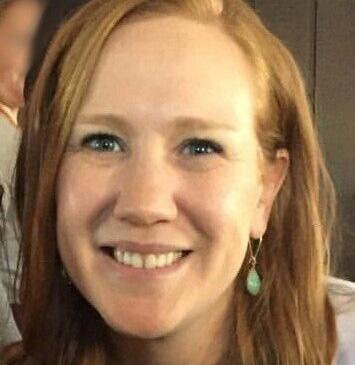
Inspired by dramatic increases in community demand for its programming, Berkshire Pulse, a nonprofit center for creative arts in Housatonic, announces that
Abigail “Abi” Rollins of Pittsfield will join the organization as its first-ever executive director. She will begin her role on July 15.
Rollins will partner with founder and Artistic Director Bettina Montano to fulfill Pulse’s mission of strengthening and enriching community life through diverse and accessible programming in performing, movement and the creative arts.
Gail Belmuth, Berkshire Pulse’s board president, said, “Pulse has entered a new chapter of strategic growth, and Abi will help us manage that growth while also building for a sustainable future. Her relevant experience, smart and collaborative approach, and mission focus will be a great addition to a wonderful team.”
Rollins joins Berkshire Pulse from Berkshire Opera Festival, where she has served as executive director since 2019. She moved to the Berkshires from Boston, where she held the positions of general manager and later managing director of Commonwealth Shakespeare Company, for a total of nine years.
Robbins honed her many skills in arts administration, through positions at Trisha Brown Dance Company, Lyric Stage Company and Boston Ballet, among others. She has a master of arts degree in arts administration from Boston University, and a double-major undergraduate degree in dance and psychology from Kenyon College.
At Pulse, Rollins will drive strategic
Michael Fallone has joined Boyd Biomedical as vice president of Launch by Boyd. In his new role, Fallone is responsible for the division Launch by Boyd, a full-service brand and marketing agency for biomedical companies. He has joined the company’s senior leadership team and reports to the chief commercial officer.
The appointment comes at a crucial time for Boyd Biomedical as the company is accelerating its strategic growth plan. The company provides a full suite of services to design, build and launch regulated devices and liquid media. By leveraging these services, biomedical innovators can accelerate their product design, manufacturing and marketing initiatives.
Fallone is a well-known marketing executive and creative leader with over 30 years of experience and a proven history of professional success. Before joining Boyd Biomedical, Fallone was head of marketing at aptihealth. Previously, he was chief creative officer and principal of id29, a premier brand strategy, marketing, and design agency in upstate New York.
Fallone has a demonstrated ability to develop business strategy, brand strategy, marketing strategy, and successful marketing communications initiatives for global brands, including PUMA, Steve Case, Scholastic, PUMA Golf, Microsoft, SI Group, Pioneer Bank, Cobra Golf, Hasbro, and Universal Music. and business planning as well as development, and will oversee day-to-day operations including finance, administration and facility operations.
Montano will increase her focus on leading Pulse’s mission and artistic vision, curriculum development, and continuing standards of excellence in programming and performance.
Berkshire Bank has hired Cathy

Velez as managing director of retail banking and deposit operations. As a senior leader, Velez will oversee Berkshire’s financial center network, retail sales and service delivery and branch operations. She will also direct the execution of the retail banking strategy to drive short- and long-term growth, business line initiatives and major divisional projects.
Velez joins Berkshire Bank with more than 25 years of extensive experience in banking. Most recently, she served in multiple senior retail and private banking roles for Webster Bank, including senior managing director, New England private client, market president and senior vice president, director of banking center sales and service. She lives in North Branford, Conn.
Berkshire Bank is a community-focused bank with financial centers in New England and New York.
Seth Shepard of Adams has been promoted to financial adviser with MountainOne Investments.
In this role, Shepard determines a client’s financial objectives, offers strategic advice on products and services to meet client goals, and manages client assets through portfolio design and retirement solutions. Shepard’s focus is on asset management, portfolio management, retirement planning, and college education planning.
Shepard has been with MountainOne Investments since 2022, most recently as a paraplanner. He is a member of MountainOne’s Communications Committee and previously served on
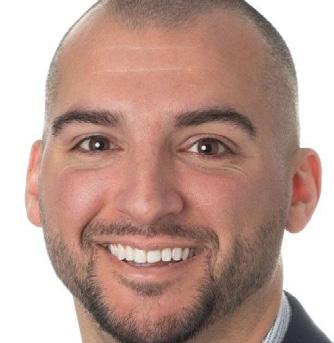
the MountainOne 175th Celebration Committee.
Prior to joining MountainOne Investments, Shepard was an account manager with Girardi Distributors in Pittsfield and a football coach at Mount Ida College in Newton.
Shepard holds a bachelor of science degree in coaching and event operations from Johnson & Wales University. In his spare time, he volunteers as a high school football coach.


Bishop West Real Estate has added Ashlee Colon and Vincent Leydet to its team of professionals.
With a commitment to elevating client service standards, Colon and Leydet join as seasoned realtors, bringing a wealth of expertise and a dedication to excellence in every transaction.
“Our vision at Bishop West Real Estate has always been centered around providing the utmost in client-level service,” said Corey Bishop, broker owner with Peter West. “With Ashlee and Vince’s addition to our team, we reinforce our commitment to this principle.”
Bishop West Real Estate was founded in 2001 and serves all of Berkshire County, Southern Vermont and Eastern New York as well as the Gulf Coast of Florida.







